- Privacy Policy

Home » 300+ Science Research Topics

300+ Science Research Topics

Welcome to the exciting world of science research topics! Science research is the process of exploring, discovering, and developing new knowledge about the natural world. It is an ever-evolving field that seeks to answer questions about the universe, from the smallest subatomic particles to the largest galaxies.
Whether you are a student, researcher , or just a curious individual, exploring science research topics can be both intellectually stimulating and rewarding. The possibilities are endless, ranging from genetics and neuroscience to renewable energy and space exploration.
In this blog, we will delve into various science research topics, discussing their significance, challenges, and future prospects. So, whether you are interested in the mysteries of the human brain or the latest breakthrough in quantum computing, then pay look at the below topics.
Science Research Topics
Science Research Topics are as follows:
- The effects of climate change on biodiversity
- The use of CRISPR/Cas9 gene editing technology
- The effects of sleep deprivation on cognitive function
- The development of artificial intelligence and machine learning
- The impact of social media on mental health
- The use of renewable energy sources to reduce carbon emissions
- The effects of air pollution on respiratory health
- The use of stem cells in regenerative medicine
- The development of quantum computing technology
- The effects of exercise on mental health
- The use of nanotechnology in medicine
- The effects of nutrition on brain development
- The development of self-driving cars and their impact on society
- The use of virtual and augmented reality in education and training
- The effects of meditation and mindfulness on mental health
- The use of gene therapy to treat genetic disorders
- The effects of ocean acidification on marine ecosystems
- The development of 3D printing technology
- The effects of electromagnetic radiation on human health
- The use of blockchain technology in supply chain management
- The effects of deforestation on climate change
- The use of biodegradable materials to reduce plastic pollution
- The effects of artificial light on circadian rhythms
- The use of drones in agriculture and environmental monitoring
- The effects of music on mental health and cognition
- The development of fusion energy technology
- The effects of radiation exposure on astronauts during space travel
- The use of cognitive enhancers to improve brain function
- The effects of soil degradation on agriculture and food security
- The development of smart materials with unique properties
- The effects of aging on the immune system
- The use of satellite imagery to monitor and predict natural disasters
- The effects of noise pollution on human health
- The use of biotechnology in food production
- The effects of artificial intelligence on employment and the economy
- The development of new antibiotics to combat drug-resistant bacteria
- The effects of gravity on plant growth and development
- The use of blockchain technology in healthcare
- The effects of microplastics on marine ecosystems and human health
- The use of CRISPR/Cas9 to develop disease-resistant crops
- The effects of climate change on human migration
- The use of brain-computer interfaces to improve communication for people with disabilities
- The effects of light pollution on wildlife and ecosystems
- The use of renewable energy sources to power electric vehicles
- The effects of indoor air pollution on respiratory health
- The development of superconducting materials for energy transmission
- The effects of stress on the immune system
- The use of blockchain technology in voting systems
- The effects of pesticides on pollinators and ecosystem services
- The development of space-based solar power systems.
- The effects of microorganisms on human health and disease
- The use of nanotechnology in drug delivery and targeting
- The use of nanotechnology in water purification
- The use of nanotechnology in targeted drug delivery
- The use of nanomaterials in water treatment
- The use of nanotechnology in food preservation and packaging
- The effects of light pollution on nocturnal animals
- The development of new methods for sustainable agriculture
- The effects of climate change on plant-pollinator interactions
- The use of machine learning in predicting protein-protein interactions
- The effects of microplastics on coral reef ecosystems
- The development of new materials for flexible electronics
- The effects of climate change on wildfire frequency and intensity
- The use of CRISPR/Cas9 to study epigenetic regulation of gene expression
- The effects of ocean acidification on shellfish aquaculture
- The development of new methods for sustainable waste management
- The effects of air pollution on cardiovascular health
- The use of gene editing to study aging and longevity
- The effects of climate change on soil microbial communities
- The development of new materials for water purification
- The effects of microgravity on plant growth and development
- The use of artificial intelligence in predicting weather patterns
- The effects of climate change on sea ice dynamics in the Arctic
- The development of new methods for sustainable urban planning
- The effects of air pollution on cognitive function
- The use of CRISPR/Cas9 to develop new cancer therapies
- The effects of ocean acidification on marine biodiversity
- The development of new materials for flexible batteries
- The effects of climate change on freshwater fish populations
- The use of machine learning in predicting drug efficacy
- The effects of microplastics on soil health
- The effects of noise pollution on marine mammals
- The development of new methods for sustainable forestry
- The effects of climate change on migratory bird populations
- The use of machine learning in predicting chemical reactions
- The effects of microplastics on freshwater ecosystems
- The development of new materials for energy storage
- The effects of climate change on desertification
- The use of CRISPR/Cas9 to study epigenetic inheritance
- The effects of ocean warming on sea turtle populations
- The development of new methods for sustainable transportation
- The effects of air pollution on mental health
- The use of gene editing to study stem cell differentiation
- The effects of climate change on aquatic plants
- The development of new materials for artificial photosynthesis
- The effects of microgravity on human bone density
- The use of artificial intelligence in medical diagnosis
- The effects of climate change on snowpack and water availability
- The development of new methods for sustainable mining
- The effects of air pollution on lung cancer risk
- The use of CRISPR/Cas9 to develop gene therapies for genetic diseases
- The effects of ocean acidification on calcifying plankton
- The development of new materials for flexible solar cells
- The effects of climate change on insect migration patterns
- The use of machine learning in predicting drug toxicity
- The effects of microplastics on human health
- The development of new methods for sustainable water desalination
- The effects of air pollution on sleep quality
- The use of gene editing to study cancer immunotherapy
- The effects of climate change on river ecosystems
- The development of new materials for water filtration
- The effects of space travel on human cognition
- The use of artificial intelligence in stock market analysis
- The effects of climate change on urban vegetation
- The development of new methods for sustainable construction
- The effects of air pollution on neurological development
- The use of CRISPR/Cas9 to study chromatin structure
- The effects of ocean warming on deep-sea ecosystems
- The development of new materials for 3D printing
- The effects of climate change on ocean currents
- The use of machine learning in predicting protein folding
- The effects of microplastics on marine bacteria
- The development of new methods for sustainable energy generation
- The effects of air pollution on diabetes risk
- The use of gene editing to study antibiotic resistance
- The effects of climate change on soil carbon sequestration
- The development of new materials for lightweight vehicle components
- The effects of space travel on the human immune system
- The use of artificial intelligence in predicting natural disasters
- The effects of climate change on microbial community dynamics in the Arctic.
- The effects of artificial light at night on human health
- The development of new methods for sustainable waste management in cities
- The effects of climate change on urban heat islands
- The use of machine learning in predicting protein structures
- The effects of microplastics on marine mammal populations
- The development of new materials for high-temperature applications
- The effects of climate change on soil biodiversity
- The use of CRISPR/Cas9 to study epigenetic modifications
- The effects of ocean warming on coral reef ecosystems
- The development of new methods for sustainable agriculture in arid regions
- The effects of air pollution on cardiovascular disease
- The use of gene editing to develop disease-resistant crops
- The effects of climate change on insect pollinators
- The development of new materials for self-healing structures
- The effects of microgravity on plant growth
- The use of artificial intelligence in drug discovery
- The effects of climate change on water availability in coastal regions
- The development of new methods for sustainable tourism
- The effects of air pollution on fetal development
- The use of CRISPR/Cas9 to study genetic disorders
- The effects of ocean acidification on shell-forming organisms
- The effects of climate change on wildfire frequency and severity
- The effects of microplastics on soil ecosystems
- The development of new methods for sustainable fish farming
- The effects of air pollution on the human microbiome
- The use of gene editing to study the genetics of aging
- The effects of climate change on wetland ecosystems
- The development of new materials for energy-efficient windows
- The effects of space travel on the human cardiovascular system
- The use of artificial intelligence in traffic management
- The effects of climate change on freshwater availability in the tropics
- The development of new methods for sustainable disaster response
- The effects of air pollution on the gut microbiome
- The use of CRISPR/Cas9 to study plant immunity
- The effects of ocean warming on marine reptile populations
- The development of new materials for sustainable packaging
- The effects of climate change on human migration patterns
- The use of machine learning in predicting protein-ligand interactions
- The effects of microplastics on terrestrial wildlife
- The development of new methods for sustainable urban agriculture
- The effects of air pollution on the developing immune system
- The use of gene editing to study neurodegenerative diseases
- The effects of climate change on alpine ecosystems
- The development of new materials for durable coatings
- The effects of space travel on the human digestive system
- The use of artificial intelligence in energy trading
- The effects of climate change on the physiology of marine invertebrates.
- The effects of climate change on forest fires
- The use of CRISPR/Cas9 to study evolution
- The effects of climate change on butterfly populations
- The use of machine learning in predicting cancer progression
- The effects of ocean warming on jellyfish blooms
- The effects of air pollution on prenatal development
- The use of gene editing to study gene regulation
- The effects of climate change on the distribution of plant species
- The development of new materials for biodegradable plastics
- The effects of microgravity on bone loss in astronauts
- The use of artificial intelligence in medical imaging
- The effects of air pollution on respiratory diseases in urban areas
- The use of CRISPR/Cas9 to study antibiotic resistance
- The development of new materials for energy-efficient lighting
- The effects of climate change on bird migration patterns
- The use of machine learning in predicting and preventing cyber attacks
- The effects of microplastics on human food chains
- The development of new methods for sustainable energy production from biomass
- The effects of air pollution on the developing brain
- The use of gene editing to study neural development
- The effects of climate change on oceanic dead zones
- The development of new materials for sustainable textiles
- The effects of space radiation on electronics
- The use of artificial intelligence in personalized medicine
- The effects of climate change on crop yields in developing countries
- The development of new methods for sustainable water management
- The effects of air pollution on hearing loss
- The use of CRISPR/Cas9 to study genome-wide mutations
- The effects of ocean warming on marine fisheries
- The development of new materials for energy-efficient building insulation
- The effects of climate change on the migration patterns of whales
- The use of machine learning in predicting and preventing wildfires
- The effects of microplastics on freshwater fish populations
- The development of new methods for sustainable waste-to-energy conversion
- The effects of air pollution on aging and dementia
- The use of gene editing to study immune responses
- The development of new materials for sustainable food packaging
- The use of artificial intelligence in precision agriculture
- The effects of climate change on the productivity of aquaculture.
- The effects of air pollution on lung development in children
- The use of CRISPR/Cas9 to study genetic diseases
- The effects of microplastics on marine food webs
- The development of new materials for 3D printing of tissue and organs
- The effects of climate change on the spread of infectious diseases
- The use of machine learning in climate modeling and prediction
- The effects of ocean warming on phytoplankton populations
- The effects of air pollution on cognitive function and brain health
- The use of gene editing to treat genetic disorders in humans
- The effects of climate change on Arctic sea ice and marine mammals
- The development of new materials for flexible and wearable technology
- The use of artificial intelligence in drug repurposing
- The effects of climate change on the migration patterns of marine species
- The development of new methods for sustainable forestry management
- The effects of air pollution on the cardiovascular system
- The effects of ocean acidification on calcifying organisms
- The development of new materials for hydrogen fuel cells
- The effects of climate change on polar bear populations
- The use of machine learning in predicting and preventing natural disasters
- The effects of microplastics on soil health and fertility
- The development of new methods for sustainable aquaculture
- The effects of air pollution on outdoor recreation and tourism
- The use of gene editing to create disease-resistant crops
- The effects of climate change on desert ecosystems
- The development of new materials for energy-efficient windows and insulation
- The effects of space radiation on human health
- The use of artificial intelligence in predicting and preventing pandemics
- The effects of climate change on the melting of the Greenland ice sheet
- The development of new methods for sustainable fisheries management
- The effects of air pollution on indoor air quality
- The use of CRISPR/Cas9 to create genetically modified animals
- The development of new materials for energy-efficient transportation
- The effects of climate change on the carbon cycle in forests
- The use of machine learning in personalized nutrition
- The effects of air pollution on the immune system
- The use of gene editing to create disease-resistant livestock
- The effects of climate change on marine sedimentation and erosion
- The effects of space travel on the human microbiome
- The use of artificial intelligence in improving mental health care
- The effects of climate change on the productivity of renewable energy sources.
- The development of carbon capture and storage technologies
- The effects of climate change on ocean currents and circulation
- The use of biotechnology to produce sustainable materials
- The effects of electromagnetic fields on plant growth and development
- The effects of artificial light at night on wildlife behavior and ecology
- The use of machine learning algorithms in drug discovery
- The effects of climate change on freshwater ecosystems
- The effects of urbanization on wildlife populations and biodiversity
- The use of satellite technology for monitoring and predicting weather patterns
- The development of new cancer therapies using immunotherapy
- The effects of climate change on agricultural productivity
- The use of precision agriculture techniques to optimize crop yields
- The effects of ocean acidification on coral reefs and marine ecosystems
- The development of new methods for water desalination
- The effects of climate change on Arctic ecosystems and sea ice
- The effects of anthropogenic noise on marine mammals
- The development of new methods for carbon sequestration in soil
- The effects of climate change on insect populations and ecosystems
- The use of CRISPR/Cas9 to engineer drought-resistant crops
- The effects of climate change on wildfires and forest ecosystems
- The development of new materials for solar energy capture
- The effects of climate change on permafrost and greenhouse gas emissions
- The use of virtual reality in medical education and training
- The effects of ocean warming on marine food webs
- The effects of climate change on extreme weather events
- The use of machine learning algorithms to analyze genomic data
- The development of new materials for sustainable building construction
- The effects of climate change on global water resources
- The use of artificial intelligence in drug delivery systems
- The effects of deforestation on soil health and fertility
- The development of new methods for carbon capture using natural systems
- The effects of climate change on coastal erosion and sea level rise
- The use of gene editing technologies to combat antibiotic resistance
- The effects of climate change on biodiversity in the Amazon rainforest
- The use of machine learning algorithms in environmental monitoring
- The effects of climate change on alpine ecosystems and mountain glaciers
- The development of new methods for carbon sequestration in oceans
- The effects of climate change on arid and semi-arid ecosystems
- The use of artificial intelligence in diagnostic imaging
- The development of new materials for sustainable transportation.
About the author
Muhammad Hassan
Researcher, Academic Writer, Web developer
You may also like

200+ Funny Research Topics

500+ Sports Research Topics

300+ American History Research Paper Topics

500+ Cyber Security Research Topics

500+ Environmental Research Topics

500+ Economics Research Topics
Subscribe or renew today
Every print subscription comes with full digital access
Science News

A new method of making diamonds doesn’t require extreme pressure
Lab-grown diamonds can form at atmospheric pressure in a liquid of gallium, iron, nickel and silicon.
How a sugar acid crucial for life could have formed in interstellar clouds
Protein whisperer oluwatoyin asojo fights neglected diseases.

Will stashing more CO 2 in the ocean help slow climate change?
Research is needed on how ocean carbon removal methods — such as iron fertilization and direct capture — could impact the environment.
A rapid shift in ocean currents could imperil the world’s largest ice shelf
A new u.s. tool maps where heat will be dangerous for your health.

Rain Bosworth studies how deaf children experience the world
Deaf experimental psychologist Rain Bosworth has found that babies are primed to learn sign language just like spoken language.
Irregular bone marrow cells may increase heart disease risk
Traces of bird flu are showing up in cow milk. here’s what to know.

We asked the experts: Should people be worried? Pasteurization and the H5N1 virus’s route to infection suggests risks to people remains low.
Noise pollution can harm birds even before they hatch
Rat cells grew in mice brains, and helped sniff out cookies.

Scientists find a naturally occurring molecule that forms a fractal
The protein assembles itself into a repeating triangle pattern. The fractal seems to be an accident of evolution, scientists say.
How two outsiders tackled the mystery of arithmetic progressions
A predicted quasicrystal is based on the ‘einstein’ tile known as the hat.

Newfound ‘altermagnets’ shatter the magnetic status quo
The newly discovered type of magnetic material could improve existing tech, including making better and faster hard drives.
Separating science fact from fiction in Netflix’s ‘3 Body Problem’
Physicists take a major step toward making a nuclear clock, science & society, language models may miss signs of depression in black people’s facebook posts.

‘Humanity’s spacecraft’ Voyager 1 is back online and still exploring
After five months of glitching, the venerable space probe contacted Earth and is continuing its interstellar mission billions of kilometers away.
Pluto’s heart-shaped basin might not hide an ocean after all

This robot can tell when you’re about to smile — and smile back
Using machine learning, researchers trained Emo to make facial expressions in sync with humans.
AI learned how to sway humans by watching a cooperative cooking game
Why large language models aren’t headed toward humanlike understanding.

Trustworthy journalism comes at a price.
Scientists and journalists share a core belief in questioning, observing and verifying to reach the truth. Science News reports on crucial research and discovery across science disciplines. We need your financial support to make it happen – every contribution makes a difference.
Subscribers, enter your e-mail address for full access to the Science News archives and digital editions.
Not a subscriber? Become one now .

Choose Your Test
Sat / act prep online guides and tips, 113 great research paper topics.
General Education

One of the hardest parts of writing a research paper can be just finding a good topic to write about. Fortunately we've done the hard work for you and have compiled a list of 113 interesting research paper topics. They've been organized into ten categories and cover a wide range of subjects so you can easily find the best topic for you.
In addition to the list of good research topics, we've included advice on what makes a good research paper topic and how you can use your topic to start writing a great paper.
What Makes a Good Research Paper Topic?
Not all research paper topics are created equal, and you want to make sure you choose a great topic before you start writing. Below are the three most important factors to consider to make sure you choose the best research paper topics.
#1: It's Something You're Interested In
A paper is always easier to write if you're interested in the topic, and you'll be more motivated to do in-depth research and write a paper that really covers the entire subject. Even if a certain research paper topic is getting a lot of buzz right now or other people seem interested in writing about it, don't feel tempted to make it your topic unless you genuinely have some sort of interest in it as well.
#2: There's Enough Information to Write a Paper
Even if you come up with the absolute best research paper topic and you're so excited to write about it, you won't be able to produce a good paper if there isn't enough research about the topic. This can happen for very specific or specialized topics, as well as topics that are too new to have enough research done on them at the moment. Easy research paper topics will always be topics with enough information to write a full-length paper.
Trying to write a research paper on a topic that doesn't have much research on it is incredibly hard, so before you decide on a topic, do a bit of preliminary searching and make sure you'll have all the information you need to write your paper.
#3: It Fits Your Teacher's Guidelines
Don't get so carried away looking at lists of research paper topics that you forget any requirements or restrictions your teacher may have put on research topic ideas. If you're writing a research paper on a health-related topic, deciding to write about the impact of rap on the music scene probably won't be allowed, but there may be some sort of leeway. For example, if you're really interested in current events but your teacher wants you to write a research paper on a history topic, you may be able to choose a topic that fits both categories, like exploring the relationship between the US and North Korea. No matter what, always get your research paper topic approved by your teacher first before you begin writing.
113 Good Research Paper Topics
Below are 113 good research topics to help you get you started on your paper. We've organized them into ten categories to make it easier to find the type of research paper topics you're looking for.
Arts/Culture
- Discuss the main differences in art from the Italian Renaissance and the Northern Renaissance .
- Analyze the impact a famous artist had on the world.
- How is sexism portrayed in different types of media (music, film, video games, etc.)? Has the amount/type of sexism changed over the years?
- How has the music of slaves brought over from Africa shaped modern American music?
- How has rap music evolved in the past decade?
- How has the portrayal of minorities in the media changed?

Current Events
- What have been the impacts of China's one child policy?
- How have the goals of feminists changed over the decades?
- How has the Trump presidency changed international relations?
- Analyze the history of the relationship between the United States and North Korea.
- What factors contributed to the current decline in the rate of unemployment?
- What have been the impacts of states which have increased their minimum wage?
- How do US immigration laws compare to immigration laws of other countries?
- How have the US's immigration laws changed in the past few years/decades?
- How has the Black Lives Matter movement affected discussions and view about racism in the US?
- What impact has the Affordable Care Act had on healthcare in the US?
- What factors contributed to the UK deciding to leave the EU (Brexit)?
- What factors contributed to China becoming an economic power?
- Discuss the history of Bitcoin or other cryptocurrencies (some of which tokenize the S&P 500 Index on the blockchain) .
- Do students in schools that eliminate grades do better in college and their careers?
- Do students from wealthier backgrounds score higher on standardized tests?
- Do students who receive free meals at school get higher grades compared to when they weren't receiving a free meal?
- Do students who attend charter schools score higher on standardized tests than students in public schools?
- Do students learn better in same-sex classrooms?
- How does giving each student access to an iPad or laptop affect their studies?
- What are the benefits and drawbacks of the Montessori Method ?
- Do children who attend preschool do better in school later on?
- What was the impact of the No Child Left Behind act?
- How does the US education system compare to education systems in other countries?
- What impact does mandatory physical education classes have on students' health?
- Which methods are most effective at reducing bullying in schools?
- Do homeschoolers who attend college do as well as students who attended traditional schools?
- Does offering tenure increase or decrease quality of teaching?
- How does college debt affect future life choices of students?
- Should graduate students be able to form unions?

- What are different ways to lower gun-related deaths in the US?
- How and why have divorce rates changed over time?
- Is affirmative action still necessary in education and/or the workplace?
- Should physician-assisted suicide be legal?
- How has stem cell research impacted the medical field?
- How can human trafficking be reduced in the United States/world?
- Should people be able to donate organs in exchange for money?
- Which types of juvenile punishment have proven most effective at preventing future crimes?
- Has the increase in US airport security made passengers safer?
- Analyze the immigration policies of certain countries and how they are similar and different from one another.
- Several states have legalized recreational marijuana. What positive and negative impacts have they experienced as a result?
- Do tariffs increase the number of domestic jobs?
- Which prison reforms have proven most effective?
- Should governments be able to censor certain information on the internet?
- Which methods/programs have been most effective at reducing teen pregnancy?
- What are the benefits and drawbacks of the Keto diet?
- How effective are different exercise regimes for losing weight and maintaining weight loss?
- How do the healthcare plans of various countries differ from each other?
- What are the most effective ways to treat depression ?
- What are the pros and cons of genetically modified foods?
- Which methods are most effective for improving memory?
- What can be done to lower healthcare costs in the US?
- What factors contributed to the current opioid crisis?
- Analyze the history and impact of the HIV/AIDS epidemic .
- Are low-carbohydrate or low-fat diets more effective for weight loss?
- How much exercise should the average adult be getting each week?
- Which methods are most effective to get parents to vaccinate their children?
- What are the pros and cons of clean needle programs?
- How does stress affect the body?
- Discuss the history of the conflict between Israel and the Palestinians.
- What were the causes and effects of the Salem Witch Trials?
- Who was responsible for the Iran-Contra situation?
- How has New Orleans and the government's response to natural disasters changed since Hurricane Katrina?
- What events led to the fall of the Roman Empire?
- What were the impacts of British rule in India ?
- Was the atomic bombing of Hiroshima and Nagasaki necessary?
- What were the successes and failures of the women's suffrage movement in the United States?
- What were the causes of the Civil War?
- How did Abraham Lincoln's assassination impact the country and reconstruction after the Civil War?
- Which factors contributed to the colonies winning the American Revolution?
- What caused Hitler's rise to power?
- Discuss how a specific invention impacted history.
- What led to Cleopatra's fall as ruler of Egypt?
- How has Japan changed and evolved over the centuries?
- What were the causes of the Rwandan genocide ?

- Why did Martin Luther decide to split with the Catholic Church?
- Analyze the history and impact of a well-known cult (Jonestown, Manson family, etc.)
- How did the sexual abuse scandal impact how people view the Catholic Church?
- How has the Catholic church's power changed over the past decades/centuries?
- What are the causes behind the rise in atheism/ agnosticism in the United States?
- What were the influences in Siddhartha's life resulted in him becoming the Buddha?
- How has media portrayal of Islam/Muslims changed since September 11th?
Science/Environment
- How has the earth's climate changed in the past few decades?
- How has the use and elimination of DDT affected bird populations in the US?
- Analyze how the number and severity of natural disasters have increased in the past few decades.
- Analyze deforestation rates in a certain area or globally over a period of time.
- How have past oil spills changed regulations and cleanup methods?
- How has the Flint water crisis changed water regulation safety?
- What are the pros and cons of fracking?
- What impact has the Paris Climate Agreement had so far?
- What have NASA's biggest successes and failures been?
- How can we improve access to clean water around the world?
- Does ecotourism actually have a positive impact on the environment?
- Should the US rely on nuclear energy more?
- What can be done to save amphibian species currently at risk of extinction?
- What impact has climate change had on coral reefs?
- How are black holes created?
- Are teens who spend more time on social media more likely to suffer anxiety and/or depression?
- How will the loss of net neutrality affect internet users?
- Analyze the history and progress of self-driving vehicles.
- How has the use of drones changed surveillance and warfare methods?
- Has social media made people more or less connected?
- What progress has currently been made with artificial intelligence ?
- Do smartphones increase or decrease workplace productivity?
- What are the most effective ways to use technology in the classroom?
- How is Google search affecting our intelligence?
- When is the best age for a child to begin owning a smartphone?
- Has frequent texting reduced teen literacy rates?

How to Write a Great Research Paper
Even great research paper topics won't give you a great research paper if you don't hone your topic before and during the writing process. Follow these three tips to turn good research paper topics into great papers.
#1: Figure Out Your Thesis Early
Before you start writing a single word of your paper, you first need to know what your thesis will be. Your thesis is a statement that explains what you intend to prove/show in your paper. Every sentence in your research paper will relate back to your thesis, so you don't want to start writing without it!
As some examples, if you're writing a research paper on if students learn better in same-sex classrooms, your thesis might be "Research has shown that elementary-age students in same-sex classrooms score higher on standardized tests and report feeling more comfortable in the classroom."
If you're writing a paper on the causes of the Civil War, your thesis might be "While the dispute between the North and South over slavery is the most well-known cause of the Civil War, other key causes include differences in the economies of the North and South, states' rights, and territorial expansion."
#2: Back Every Statement Up With Research
Remember, this is a research paper you're writing, so you'll need to use lots of research to make your points. Every statement you give must be backed up with research, properly cited the way your teacher requested. You're allowed to include opinions of your own, but they must also be supported by the research you give.
#3: Do Your Research Before You Begin Writing
You don't want to start writing your research paper and then learn that there isn't enough research to back up the points you're making, or, even worse, that the research contradicts the points you're trying to make!
Get most of your research on your good research topics done before you begin writing. Then use the research you've collected to create a rough outline of what your paper will cover and the key points you're going to make. This will help keep your paper clear and organized, and it'll ensure you have enough research to produce a strong paper.
What's Next?
Are you also learning about dynamic equilibrium in your science class? We break this sometimes tricky concept down so it's easy to understand in our complete guide to dynamic equilibrium .
Thinking about becoming a nurse practitioner? Nurse practitioners have one of the fastest growing careers in the country, and we have all the information you need to know about what to expect from nurse practitioner school .
Want to know the fastest and easiest ways to convert between Fahrenheit and Celsius? We've got you covered! Check out our guide to the best ways to convert Celsius to Fahrenheit (or vice versa).
These recommendations are based solely on our knowledge and experience. If you purchase an item through one of our links, PrepScholar may receive a commission.

Christine graduated from Michigan State University with degrees in Environmental Biology and Geography and received her Master's from Duke University. In high school she scored in the 99th percentile on the SAT and was named a National Merit Finalist. She has taught English and biology in several countries.
Student and Parent Forum
Our new student and parent forum, at ExpertHub.PrepScholar.com , allow you to interact with your peers and the PrepScholar staff. See how other students and parents are navigating high school, college, and the college admissions process. Ask questions; get answers.

Ask a Question Below
Have any questions about this article or other topics? Ask below and we'll reply!
Improve With Our Famous Guides
- For All Students
The 5 Strategies You Must Be Using to Improve 160+ SAT Points
How to Get a Perfect 1600, by a Perfect Scorer
Series: How to Get 800 on Each SAT Section:
Score 800 on SAT Math
Score 800 on SAT Reading
Score 800 on SAT Writing
Series: How to Get to 600 on Each SAT Section:
Score 600 on SAT Math
Score 600 on SAT Reading
Score 600 on SAT Writing
Free Complete Official SAT Practice Tests
What SAT Target Score Should You Be Aiming For?
15 Strategies to Improve Your SAT Essay
The 5 Strategies You Must Be Using to Improve 4+ ACT Points
How to Get a Perfect 36 ACT, by a Perfect Scorer
Series: How to Get 36 on Each ACT Section:
36 on ACT English
36 on ACT Math
36 on ACT Reading
36 on ACT Science
Series: How to Get to 24 on Each ACT Section:
24 on ACT English
24 on ACT Math
24 on ACT Reading
24 on ACT Science
What ACT target score should you be aiming for?
ACT Vocabulary You Must Know
ACT Writing: 15 Tips to Raise Your Essay Score
How to Get Into Harvard and the Ivy League
How to Get a Perfect 4.0 GPA
How to Write an Amazing College Essay
What Exactly Are Colleges Looking For?
Is the ACT easier than the SAT? A Comprehensive Guide
Should you retake your SAT or ACT?
When should you take the SAT or ACT?
Stay Informed
Get the latest articles and test prep tips!
Looking for Graduate School Test Prep?
Check out our top-rated graduate blogs here:
GRE Online Prep Blog
GMAT Online Prep Blog
TOEFL Online Prep Blog
Holly R. "I am absolutely overjoyed and cannot thank you enough for helping me!”
Science Research Paper Topics

Acoustics Research Paper Topics
Agriculture research paper topics, anatomy research paper topics, astrophysics research paper topics, biochemistry research paper topics, biology research paper topics, botany research paper topics, chemistry research paper topics, ecology research paper topics, engineering research paper topics, genetics research paper topics, geology research paper topics, mathematics research paper topics, organic chemistry research paper topics, paleontology research paper topics, physics research paper topics.
The English word science derives from the Latin scire , “to know.” In many languages, the word science or its equivalents can be used broadly to mean “a systematic body of knowledge that guides our relations with the world.” This is the sense that is present in phrases such as “the social sciences.” There have existed many different knowledge systems of this type. All animals with brains have, and make use of, structured knowledge of the external world, so in principle we could claim that even animals depend on some form of science.
Academic Writing, Editing, Proofreading, And Problem Solving Services
Get 10% off with 24start discount code, 300+ science research paper topics.
Acoustics is the science that deals with the production, transmission, and reception of sound. The first scientist to study sound scientifically was German physicist Ernst Florens Friedrich Chladni (1756–1827). Chladni was an amateur musician who became interested in finding mathematical equations to describe musical sounds. Because of his work, he is often called the father of acoustics. Science research paper topics related to acoustics include:
- Diffraction
- Echolocation
- Magnetic recording
- Ultrasonics
The development of agriculture—the raising of crops and animals for food—has been fundamental to the development of civilization. Farming brought about the settlement of farm communities, which grew into towns and city-states. Farming also made possible sedentary (settled) lifestyles, which in turn led to increased technological development. As growing populations demand an ever-increasing food supply, the need for agricultural advances continues to this day. Science research paper topics related to agriculture include:
- Agrochemical
- Aquaculture
- DDT (dichlorodiphenyltrichloroethane)
- Organic farming
- Slash-and-burn agriculture
Anatomy is a branch of biology that deals with the structure of plants and animals. Comparative anatomy is a related field in which the structures of different animals are studied and compared. There are three main areas of anatomy: gross anatomy deals with organs and organ groupings called systems that are visible to the naked eye; cytology is the study of cell structure; and histology examines the structure of tissues. Microscopes are used in both cytology and histology to study cell and tissue structures. Science research paper topics related to anatomy include:
- Cholesterol
- Circulatory system
- Digestive system
- Endocrine system
- Excretory system
- Immune system
- Integumentary system
- Lymphatic system
- Muscular system
- Nervous system
- Reproductive system
- Respiratory system
- Skeletal system
Astrophysics uses the already understood theories of physics (the study of matter and energy) to describe astronomical (universal) phenomena or events. Astrophysicists try to understand the processes that cause our universe and everything in it to behave the way it does. Science research paper topics related to astrophysics include:
- Archaeoastronomy
- Big bang theory
- Binary star
- Brown dwarf
- Celestial mechanics
- Constellation
- Dark matter
- Extrasolar planet
- Infrared astronomy
- Meteor and meteorite
- Neutron star
- Radio astronomy
- Solar system
- Starburst galaxy
- Star cluster
- Stellar magnetic fields
- Ultraviolet astronomy
- White dwarf
- X-ray astronomy
Biochemistry is the science dealing with the chemical nature of the bodily processes that occur in all living things. It is the study of how plants, animals, and microbes function at the level of molecules. Science research paper topics related to biochemistry include:
- Carbohydrate
- Fermentation
- Nucleic acid
Biology (from the Greek bios, meaning “life”) is the scientific study of all forms of life, including plants, animals, and microorganisms. Biology is composed of many fields, including microbiology, the study of microscopic organisms such as viruses and bacteria; cytology, the study of cells; embryology, the study of development; genetics, the study of heredity; biochemistry, the study of the chemical structures in living things; morphology, the study of the anatomy of plants and animals; taxonomy, the identification, naming, and classification of organisms; and physiology, the study of how organic systems function and respond to stimulation. Biology often interacts with other sciences, such as psychology. For example, animal behaviorists would need to understand the biological nature of the animal they are studying in order to evaluate a particular animal’s behavior. Science research paper topics related to biology include:
- Antibody and antigen
- Biodiversity
- Cryobiology
- Eutrophication
- Fertilization
- Hibernation
- Indicator species
- Metamorphosis
- Molecular biology
- Photosynthesis
- Reproduction
- Respiration
Botany is a branch of biology that deals with plant life. It is the study of the structure and the vital processes of plants, including photosynthesis, respiration, and plant nutrition. Among the plants studied are flowering plants, trees, shrubs, and vines. Specialized areas within the field of botany include the study of mosses, algae, lichens, ferns, and fungi. Science research paper topics related to botany include:
- Horticulture
Chemistry is the study of the composition of matter and the changes that take place in that composition. If you place a bar of iron outside your window, the iron will soon begin to rust. If you pour vinegar on baking soda, the mixture fizzes. If you hold a sugar cube over a flame, the sugar begins to turn brown and give off steam. The goal of chemistry is to understand the composition of substances such as iron, vinegar, baking soda, and sugar and to understand what happens during the changes described here. Science research paper topics related to chemistry include:
- Acids and bases
- Alkali metals
- Aluminum family
- Atomic mass
- Biochemistry
- Carbon family
- Catalyst and catalysis
- Chemical bond
- Compound, chemical
- Dyes and pigments
- Electrolysis
- Element, chemical
- Equation, chemical
- Formula, chemical
- Industrial minerals
- Lanthanides
- Nitrogen family
- Oxidation-reduction reaction
- Oxygen family
- Periodic table
- Poisons and toxins
- Reaction, chemical
- Transition elements
Ecology is the study of the relationships of organisms with their living and nonliving environment. No organism exists entirely independently of other living and nonliving things around it. A cactus in the middle of the desert, for example, draws nourishment from the air and from the ground. It depends on sunlight for energy needed to grow. The cactus may be home to birds, lizards, and microscopic animals. Even relationships that seem to be stark and simple as that of the cactus with its surroundings involve complex ties that form the subject matter of ecology. Science research paper topics related to ecology include:
- Alternative energy sources
- Biodegradable
- Carbon cycle
- Endangered species
- Environmental ethics
- Food web and food chain
- Gaia hypothesis
- Greenhouse effect
- Hydrologic cycle
- Nitrogen cycle
- Paleoecology
- Pollution control
- Rain forest
- Waste management
Engineering is the art of applying science, mathematics, and creativity to solve technological problems. The accomplishments of engineering can be seen in nearly every aspect of our daily lives, from transportation to communications to entertainment to health care. Engineering follows a three-step process: analyzing a problem, designing a solution for that problem, and transforming that design solution into physical reality. Science research paper topics related to engineering include:
- Aerodynamics
- Compact disc
- Diesel engine
- Electric arc
- Electric current
- Electric motor
- Electricity
- Electrocardiogram
- Electromagnetic field
- Electromagnetic induction
- Electronics
- Fluorescent light
- Incandescent light
- Integrated circuit
- Internal-combustion engine
- LED (light-emitting diode)
- Mass production
- Steam engine
- Superconductor
- Transformer
- Video recording
Genetics is the branch of biology concerned with the science of heredity. The term heredity refers to the way in which specific characteristics are transmitted from one generation to the next. For example, we know that a tall mother and a tall father tend to have children that are tall. Geneticists (scientists who study genetics) are interested in finding out two things about this observation. First, what is there in the cells of a person’s body that directs the body to become tall rather than short. Second, how are the directions for “tallness” transmitted from parent to offspring, from one generation to the next? Science research paper topics related to genetics include:
- Biotechnology
- Birth defects
- Clone and cloning
- Genetic disorders
- Genetic engineering
- Human Genome Project
- Mendelian laws of inheritance
Geology is the scientific study of Earth. Geologists study the planet—its formation, its internal structure, its materials, its chemical and physical processes, and its history. Mountains, valleys, plains, sea floors, minerals, rocks, fossils, and the processes that create and destroy each of these are all the domain of the geologist. Geology is divided into two broad categories of study: physical geology and historical geology. Science research paper topics related to geology include:
- Catastrophism
- Coast and beach
- Continental margin
- Earth science
- Earth’s interior
- Geologic map
- Geologic time
- Natural gas
- Oil drilling
- Plate tectonics
Mathematics is the science that deals with the measurement, properties, and relationships of quantities, as expressed in either numbers or symbols. For example, a farmer might decide to fence in a field and plant oats there. He would have to use mathematics to measure the size of the field, to calculate the amount of fencing needed for the field, to determine how much seed he would have to buy, and to compute the cost of that seed. Mathematics is an essential part of every aspect of life—from determining the correct tip to leave for a waiter to calculating the speed of a space probe as it leaves Earth’s atmosphere. Science research paper topics related to mathematics include:
- Boolean algebra
- Complex numbers
- Correlation
- Graphs and graphing
- Imaginary number
- Multiplication
- Natural numbers
- Proof (mathematics)
- Pythagorean theorem
- Trigonometry
Organic chemistry is the study of compounds of carbon. The name organic goes back to a much earlier time in history when chemists thought that chemical compounds in living organisms were fundamentally different from those that occur in nonliving things. The belief was that the chemicals that could be extracted from or that were produced by living organisms had a special “vitalism” or “breath of life” given to them by some supernatural being. As such, they presented fundamentally different kinds of problems than did the chemicals found in rocks, minerals, water, air, and other nonliving entities. The chemical compounds associated with living organisms were given the name organic to emphasize their connection with life. Science research paper topics related to organic chemistry include:
Paleontology is the study of ancient life-forms of past geologic periods. Paleontologists learn about ancient animals and plants mainly through the study of fossils. These may be the actual remains of the animal or plant or simply traces the organism left behind (tracks, burrows, or imprints left in fine sediments). Science research paper topics related to paleontology include:
- Dating techniques
- Fossil and fossilization
Physics is the science that deals with matter and energy and with the interaction between them. Perhaps you would like to determine how best to aim a rifle in order to hit a target with a bullet. Or you want to know how to build a ship out of steel and make sure that it will float. Or you plan to design a house that can be heated just with sunlight. Physics can be used in answering any of these questions. Science research paper topics related to physics include:
- Acceleration
- Antiparticle
- Atomic theory
- Cathode-ray tube
- Conservation laws
- Doppler effect
- Electromagnetism
- Evaporation
- Fluid dynamics
- Gravity and gravitation
- Interference
- Laws of motion
- Nuclear fission
- Nuclear fusion
- Particle accelerators
- Photoelectric effect
- Quantum mechanics
- Radioactivity
- Relativity theory
- Subatomic particles
- Temperature
- Thermodynamics
- Virtual reality
- Wave motion
What is Science?
The term science (in Latin scientia , in Greek epist é m é ) means “knowledge.” In philosophy it refers strictly to proven ideas, to the exclusion of hypotheses or speculations. Until the twentieth century, proof remained mysterious, but what it achieves has been clear since antiquity: certainty, truth unshakable by criticism or doubt. In the nineteenth century Newtonian mechanics was admitted as scientific in this strict sense, and its overthrow was an earthquake. Scholars now agree that certitude is limited to logic and mathematics. Thus scientists have shifted their efforts toward securing for science a surrogate certainty—usually probability.
This shift raises many new questions, thus far unstudied. For example, is Isaac Newton’s theory still scientific? In 1962 the historian of science Thomas S. Kuhn spoke of “pre-science” and of “petrified science.” Which defunct theory should remain in the up-to-date science textbook? Kuhn suggested that it should present only the latest ideas. Which ones? If not proof, what makes an idea scientific? This is one version of the problem of the demarcation of science (as sets of statements) in disregard for other aspects of the scientific enterprise and its context— intellectual, educational, sociopolitical, and so on. Another possible point of departure is the social dimension of science. In the early seventeenth century the English philosopher Francis Bacon said that the advancement of science would improve the human condition, so investing efforts in scientific research would be the most efficient way to spend one’s spare time. Georg Wilhelm Friedrich Hegel, the early-nineteenth-century German philosopher, noted that the invention of gunpowder made city walls useless and so altered the political landscape. The German political philosopher Karl Marx in the nineteenth century equated science with technology ( grosso modo ) and declared all social and political changes as due to technological progress. Following on Marx, in 1939 the English physicist J. D. Bernal made the dubious claim that medieval science was superior to ancient science. In 1964 the Marxist philosopher Louis Althusser rejected many of Marx’s sweeping generalizations but still declared the humanities mostly errors that express bourgeois ideology; he contrasted this ideology with science proper, which includes both the exact sciences and revolutionary dialectical materialism as he understood it. He did not trouble himself to demarcate these fields sufficiently to invite detailed discussions as to whether a certain theory, say, in physics or in economics, is or is not scientific. In 1919—decades before Althusser—the American economist Thorstein Veblen studied the nature of science in an effort to examine the validity of claims for the scientific status of diverse economic theories, including that of Marx. He demarcated science historically, by reference to the scientific ethos that, he said, these theories represent; this ethos is often called humanism , the same ethos that Althusser later dismissed as bourgeois. Veblen also drew attention to the wealth of empirical finds and role of theories as explanatory (as opposed to classificatory).
Twentieth-century social science developed ideas about specific aspects of society, including prestige—social prestige, the prestige of ideas, and the prestige of scientific ideas. (Prestige is enhanced by power over life; thus nuclear physics is most prestigious.) The concept of science must include the gathering of some sort of empirical information and the search for some interconnections between that information and certain ideas. Science then appears to involve intellectual activities of some sort.
Already four centuries ago Bacon deemed science the outcome of the indiscriminate collection of factual information and its use as a solid foundation on which to construct truly scientific ideas. His view, perhaps modified, prevails as the myth of science. (Being a myth proper, it is used at times in its original variant and at other times in modification.) The problem of demarcation then becomes: What do I know, and how can I show that I truly know it? This approach puts science in a psychological context, raising the question, as suggested by the twentieth-century philosopher of science Karl Popper: Is the psychology used to characterize science scientific? Science is also a publicly available fund of knowledge; the traditional view of it as psychological leads to the view (characteristic of the approaches known as reductionism and psychologism) of everything social as inherently psychological.
If science can be viewed as psychological, so too can mathematics, as suggested by Bacon and the nineteenthcentury English philosopher and economist John Stuart Mill. The refutation of this notion led to the revolutionary shift of the view of knowledge from psychology to sociology—from my knowledge to ours—opening the way for the study of the enterprise of science, its prestige, and the social class of its practitioners. This in turn opens interesting secondary questions: Are the teaching of science and the administration of science scientific? (Is the dean of the faculty of science a scientist?) Is all sciencebased technology scientific? The sociology of science, a young discipline hatched in the early twentieth century, has not yet reached these questions. Such questions pose a difficulty: Science is international, but science-based professions are not. (Compare Japanese science with Japanese technology.) Come to think of it, how international is science? (Is establishing some lingua franca for science advisable?)
Here is a general dispute about all human studies: Existentialists and postmodernists want them to be utterly context dependent, case by case; positivists and analysts want them utterly context free. Seeking a middle ground in sociological laws to set limits on fragmentation, one may view social institutions as generalizations that determine the extent of context dependence. Money is one such institution. Rather than speak separately of the interests of every economic agent, we speak of their profit motive, which, as Georg Simmel argued in 1900, is an intermediary. This role of money makes it important and explains the success of the economic theory that eliminates it from its equations (by replacing prices with relative prices). The trouble is, while waiting for sociology to develop, how should social scientists proceed? They can make use of trivial sociology that at times is powerful. The suitable general concept here is that of games or science regulated by recognized rules (usually institutionalized). Games need not be problematic unless placed under the artificial limitations imposed in game theory, and as in the case of war games, they need not always be frivolous. As to the triviality of the sociology of games, it is advantageous: It stops the question-begging nature of the theory of science from becoming a nuisance. Thus the rules of the game are negotiable. The game of science then might, but need not, exclude science administration, science education, (science-based) technology, and more. Also the rules may be flexible. All this is a secondary issue, as it obviously should be, as long as science remains chiefly the search for ideas and information of a certain kind. The problem of demarcation now reappears: Which kind? Any kind we want.
As this view of science allows excessive freedom, it also invites instituting limitations—to some function, to some tradition, or to some existing paradigms. Paradigms can be ideas (Newton on gravity), preferred ideas (Einstein), institutions (the Royal Society of London, the local medical school, the patent office), traditions, perhaps ways of life. Approaches to problems via paradigms are limited: Taken too seriously, they prove troublesome as too much may depend on an innocent arbitrary choice. The paradigm of this trouble concerns choices of words resting on the view that the commonness of usage is its only justification. We do not want all usage justified, because we want language to function as a useful means for communication.
What then is the function of science? Among several functions, its most conspicuous is explanation, discovery, invention, better living. Jumping a few steps ahead, one can say that its chief function is the search for true explanations (as suggested by Newton, Einstein, and Popper). Its other functions are peripheral. Assuming this to be the case, one can view science as primarily but not solely the enterprise of approaching true explanations of increasing funds of publicly available information.
This is lovely but full of holes. How do we learn from experience? In what way are scientific theories empirical? Popper broke new ground when he said that theories are empirical when they exclude certain observations and to the extent that they do so. Testing them is, then, the search for these observations; the function of testing theories is to refute them so as to usher in their successors. Applying such a test to the theories of Marx and Sigmund Freud, Popper proved them nonempirical. This approach depends on the exact wording of theories, which may become testable by the enrichment of their contents. Popper later tried to square the two ideas: that the empirical is the refutable and that the aim of theorizing is the approximation of the truth (Einstein). The success of his attempt is under debate.
Robert K. Merton approached matters more historically. In 1938, in the wake of Max Weber, the German sociologist of the late nineteenth century and early twentieth century, Merton identified the scientific revolution with the establishment of the Royal Society of London and the motive for it as Protestantism. He then developed a quasi-Weberian model of science, resting on the theory of science of William Whewell (1840, 1858). Merton’s views earned much fame and much criticism. The criticism is at times valid, as Whewell’s view is outdated, and at times based on trivial evidence that he idealized science (which he frankly admitted), both in the sense of presenting it at its best and in the sense that Weber recommended the developing of an ideal type. Reports on poor examples of laboratory life as if they were representative appeared as alleged refutations of his views, although fraud is hard to eradicate anywhere.
The presentation of science by Michael Polanyi (1958, 1966) is the most intriguing, even though he played down the rationality of science. He compared the sociology of science to that of the arts and deemed both artistic and scientific training as the tacit transmission of ways of life in workshops by way of personal example. Polanyi’s view is insightful and beneficial, although it overstresses tradition as endorsement while slighting the traditional encouragement of criticism and of independence (as suggested by Popper). Polanyi was in error when he ignored efforts to render the tacit explicit and open the results to criticism.
Polanyi’s views were further developed by Kuhn, who wished to extend the instruction of leaders beyond their immediate personal example limited to their workshops. Their products can travel and serve as substitutes for personal examples. These become chief examples or, in Greek, paradigms. A science is mature, he said, as it gains a ruling paradigm. This notion appealed to those who wanted their products to serve as paradigms, especially in social studies, where the craving for status is strong. Kuhn later admitted that a territory can be divided between paradigms. He also admitted that identifying a paradigm is difficult. This difficulty should not trouble followers of Polanyi, but it does bother followers of Kuhn, as he declared paradigms obligatory. Kuhn’s approach runs contrary to the view of Merton about the liberalism of science. Kuhn also declared his theory applicable only to the study of nature, not of society.
How do the studies of nature and society differ? Any discussion of this question has to be in accord with one view of science or another. One may of course go to and fro, using the best view of science to differentiate natural and social science and then taking the best differentiation one has to try to learn what it says about science. One thing is certain: Social sciences have a more important role to play in the discussion of science than was heretofore believed.
BIBLIOGRAPHY:
- Agassi, Joseph. 1981. Sociologism in Philosophy of Science. In Science and Society: Studies in the Sociology of Science , 85–103. Hingham, MA: Kluwer Boston.
- Althusser, Louis. 1964. Marxisme et humanisme. Cahiers de l’Institut de Science Économique Appliquée 20: 109–133.
- Althusser, Louis. 1996. Marxism and Humanism. In For Marx . Trans. Ben Brewster, 219–241. London: Verso, 1996.
- Bacon, Francis. [1620] 2000. Novum Organum [The new organon], eds. Lisa Jardine and Michael Silverthorne. Cambridge, U.K., and New York: Cambridge University Press.
- Bernal, J. D. 1939. The Social Function of Science . London: Routledge.
- Carnap, Rudolf, and Richard C. Jeffrey, eds. 1971–1980. Studies in Inductive Logic and Probability . 2 vols. Berkeley: University of California Press.
- Einstein, Albert. 1994. Ideas and Opinions . New York: Modern Library.
- Hegel, Georg Wilhelm Friedrich. [1837] 2004. The Philosophy of History . Trans. J. Sibree. University of Idaho, Department of Philosophy. http://www.class.uidaho.edu/mickelsen/texts/Hegel%20-20Philosophy%20of%20History.htm
- Kuhn, Thomas S. 1962. The Structure of Scientific Revolutions . Chicago: University of Chicago Press.
- Latour, Bruno, and Steve Woolgar. 1986. Laboratory Life: The Construction of Scientific Facts . Foreword by Jonas Salk. Princeton, NJ: Princeton University Press.
- Levi, Isaac. 1986. Hard Choices: Decision Making under Unresolved Conflict . Cambridge, U.K., and New York:Cambridge University Press.
- Merton, Robert K. [1938] 2001. Science, Technology, and Society in Seventeenth-Century England . New York: Howard Fertig.
- Merton, Robert K. 1965. On the Shoulders of Giants . New York: Free Press.
- Notturno, Mark A. 1985. Objectivity, Rationality and the Third Realm: Justification and the Grounds of Psychologism: A Study of Frege and Popper . Dordrecht, Netherlands: Kluwer Academic Publishers.
- Polanyi, Michael. 1958. Personal Knowledge: Towards a Post- Critical Philosophy . Chicago: University of Chicago Press.
- Polanyi, Michael. 1966. The Tacit Dimension . Garden City, NY: Doubleday.
- Popper, Karl R. 1945. The Open Society and Its Enemies . London: Routledge.
- Popper, Karl R. 1959. The Logic of Scientific Discovery . New York: Basic Books.
- Popper, Karl R. 1972. Knowledge without the Knowing Subject. In Objective Knowledge: An Evolutionary Approach , 106–152. Oxford: Clarendon.
- Russell, Bertrand. 1931. The Scientific Outlook . New York: Norton.
- Russell, Bertrand. 1948. Human Knowledge, Its Scope and Limits . New York: Simon and Schuster.
- Simmel, Georg. [1900] 2004. The Philosophy of Money , ed. David Frisby. Trans. Tom Bottomore and David Frisby. 3rd ed. London and New York: Routledge.
- Veblen, Thorstein. [1919] 1990. The Place of Science in Modern Civilization and Other Essays . New Brunswick, NJ: Transaction.
- Wettersten, John R. 1995. Preliminary Report on Efforts of Psychologism to Gain Influence in Proper Epistemological, Methodological, and Psychological Societies. In Critical Rationalism: Essays for Joseph Agassi , eds. I. C. Jarvie and Nathaniel Laor. Vol. 2. Dordrecht, Netherlands, and Boston: Kluwer Academic Publishers.
- Whewell, William. 1858. Novum Organum Renovatum . London: John W. Parker.
- Whewell, William. 1967. The Philosophy of the Inductive Sciences, Founded upon Their History . 2 vols. New York and London: Johnson Reprint Corporation.
ORDER HIGH QUALITY CUSTOM PAPER


TODAY'S HOURS:
Research Topic Ideas
- Picking a Topic
- Area & Interdisciplinary Studies
- Behavioral & Social Sciences
- Business, Economics, & Management
- Current Events and Controversial Issues
- Education & Social Work
- Health Sciences
Astronomy Topics
Biology topics, chemistry and biochemistry topics, computer science and information technology & informatics topics, engineering topics, geography, planning, & environment, mathematics topics, physics topics, related guides.
- Research Process by Liz Svoboda Last Updated Mar 1, 2024 6815 views this year
- Big Bang theory
- Black holes
- Curiosity Rover
- Dwarf galaxies
- Earth-size planets
- Gravitational lensing
- Hubble telescope
- Kepler telescope
- Philae probe
- Remote sensing
- Sagan effect
- Spectroscopy
- Stellar spectra
- Superclusters
Related subject guide and suggested database
- Physics and Astronomy: A Guide to Library Research by Reference Librarians Last Updated Nov 3, 2023 64 views this year

Online books and journals, primarily in the life and physical sciences, technology, and medicine, as well as business and the social sciences
Includes over 2,000 journals and 35,000 books published by Elsevier Science and its subsidiary publishers, including Academic Press, Cell Press, Pergamon, Mosby, and Saunders journals. Coverage is particularly strong for the life and physical sciences, medicine, and technical fields, but also includes some social sciences and humanities. Includes chemistry, chemical engineering, clinical medicine, computer science, earth & planetary sciences, economics, engineering, energy & technology, environmental science & technology, life sciences, materials science, mathematics, physics, astronomy.
- Algae blooms
- Biological warfare
- Bioluminescence
- Butterfly migration
- Circadian rhythm
- Coral reefs
- De-extinction
- Dismal Swamp
- Endangered species
- Fertilizers
- Genetically modified organisms (GMOs)
- Human genome map
- Invasive species
- Mass extinction
- Mutagenesis
- Neural systems
- Neurobiology of sleep
- Oil spill effects
- Organic farming
- Primate language
- Rainforest conservation
- Teratogenesis
- Wetland restoration
- Biology: A Guide to Library Research by Reference Librarians Last Updated Mar 12, 2024 79 views this year
Collection of five major collections in biology, environmental sciences, ecology, and agriculture.
Includes these collections:
- Agricola: Millions of records from the U.S. Department of Agriculture's National Agricultural Library dating back to 1970. The citations include journal articles, monographs, theses, patents, software, audiovisual materials, and technical reports related to agriculture.
- Biological & Agricultural Index Plus: 1983-present. Agriculture, animal husbandry, botany, cytology, ecology, entomology, environmental science, fishery sciences, food science, forestry, genetics, horticulture, microbiology, plant pathology, soil science, veterinary medicine, zoology.
- Environment Complete: Coverage in applicable areas of agriculture, ecosystem ecology, energy, renewable energy sources, natural resources, marine & freshwater science, geography, pollution & waste management, environmental technology, environmental law, public policy, social impacts, urban planning, and more.
- GreenFILE: Articles, books and government documents on global warming, environmental protection and renewable energy.
- Wildlife & Ecology Studies Worldwide: Covers 1935 & earlier to the present, and is the world's largest index to literature on wild mammals, birds, reptiles, and amphibians. Most of the records in this database are from Wildlife Review Abstracts, which offers a global perspective and is the most comprehensive resource on wildlife information. Major topic areas include studies of individual species, habitat types, hunting, economics, wildlife behavior, management techniques, diseases, ecotourism, zoology, taxonomy and much more.
- Alkali metals
- Bioenergetics
- Buffer solutions
- Carbon cature
- Carbon dating
- Chemical carcinogens
- Chemical warfare
- Desalinization
- Electromagnetic radiation
- Oxidation numbers
- Periodic table
- Pyrotechnics
- Radioactive waste
- Silver iodide
- Synthetic DNA
- Water fluoridation
- Chemistry: A Guide to Library Research by Reference Librarians Last Updated Dec 13, 2023 103 views this year
- Artificial intelligence
- Biometric signature
- Computer animation
- Computer composed music
- Computer forensics
- Computer modeling
- Gamification
- General Data Protection Regulation
- Intelligent databases
- Internet of things
- Machine language
- Mobile computing
- Social media literacy
- Ubiquitous design
- Voice recognition
- Computer Science: A Guide to Library Research by Reference Librarians Last Updated Mar 5, 2024 57 views this year
Full-text access to IEEE transactions, journals, magazines, conference proceedings, standards, and online courses, plus related e-books. Covers engineering, computer science, technology, and physics.
IEEE Courses uses the best educational courses from IEEE conferences and workshops around the world and delivers them in interactive video format. You can earn Continuing Education Unit (CEU) credits and Professional Development Hours (PDH). To set up remote access to IEEE Xplore on a mobile device, please follow these steps:
- On the mobile device, use a browser to visit the IEEE Xplore website through the U-M Library's access.
- Click on the blue tab "My Settings" in the middle of the screen, then choose "Remote Access."
- Follow the instructions to pair your device. Users will be asked to sign in with an IEEE personal account before pairing.
- This device can now be used off-site for 90 days to access IEEE Xplore. Users must go to IEEE Xplore on the paired device and log in with their IEEE personal account to access the roaming subscription.
Please note that after 90 days, users will be prompted to again pair their device and can follow the same steps as the initial pairing.
- 3D printing
- Additive design
- Aeroacoustics
- Aerothermodynamics
- Air turbulence
- Analytical mechanics
- Boundary layer
- Carbon capture
- Composite materials
- Computer-aided design (CAD)
- Computer-aided engineering (CAE)
- Computer-aided manufacturing (CAM)
- Design optimization
- Electric cars
- Fiber optics
- Finite element analysis (FEA)
- Fluid dynamics
- Flutter phenomena
- Information theory
- Geoengineering
- High horsepower in cars
- Hybrid vehicles
- Hydroforming
- Laser applications
- Liquid crystals
- Nanomaterials
- Nanotechnology
- Naturalistic decision making
- Nuclear power
- Stereo imaging
- Engineering: A Guide to Library Research by Reference Librarians Last Updated Mar 12, 2024 57 views this year
- Air pollution
- Algae bloom
- Alternative fuels
- Beach erosion
- Carbon footprint
- Climate forcing
- Compostable plastic
- Dymaxion House
- Earth-sheltered structures
- Green cities
- Green infrastructure
- Natual resource conservation
- Nitrogen farming
- Ozone depletion
- Pollution reduction
- Rip currents
- Soil contamination
- Sustainable design
- Three Gorges Dam
- Tiny houses
- Toxic dumping in oceans
- Water conservation
- Water pollution
- Geography, Planning, and Environment: A Guide to Library Research by Reference Librarians Last Updated Feb 23, 2024 55 views this year
- Applied statistics
- Bioinformatics
- Convex geometry
- Game theory
- Millennium Prize problems
- Probability theory
- Random walks
- Representation theory
- Riemannian geometry
- Theory of chaos
- Turing, Alan
- Turing patterns
- Mathematics: A Guide to Library Research by Reference Librarians Last Updated Mar 6, 2024 31 views this year
Online access to Mathematical Reviews , the journal of record which indexes, reviews, and abstracts the published mathematical research literature. 1940-present, with some earlier content.
- Antiparticles
- Bohr's radius
- Bose–Einstein condensate
- Dark matter
- Gravitational waves
- Heat death of the universe
- Higgs boson
- Manhattan Project
- Nanofabrication
- Quantum entanglement
- Space elevator
- Superstring theory
- Thermodynamics
- Wave-particle duality
World-wide literature (mainly journal articles and conference proceedings papers) in astronomy, physics, electronics and electrical engineering, computers and control, and information technology.
Hosted on Engineering Village platform. Covers physics, electrical & electronic engineering, communications, computer science, control engineering, information technology, manufacturing & mechanical engineering, operations research, material science, oceanography, engineering mathematics, nuclear engineering, environmental science, geophysics, nanotechnology, biomedical technology, and biophysics.
- << Previous: Humanities
- Last Updated: Mar 1, 2024 1:06 PM
- URL: https://libguides.umflint.edu/topics
300 Cutting-Edge Science Research Topics to impress Your professor

Science research forms the foundation of human knowledge and drives innovation in every aspect of our lives. Through rigorous investigation, experimentation, and analysis, we gain a deeper understanding of the world around us. That being said, it is always challenging to get started with your science research paper, but beginning with a good topic works as a stepping stone. As professional paper writing solutions providers, we took it upon ourselves to inform you about a few topics to help you craft an impressive piece. Let’s get to read them all.
Table of Contents
Why is Science Research Important?
Before we begin reading the lists of a few science topics to research on, let’s first try to understand the importance of a scientific paper.
Advances Our Knowledge
- Science research expands our understanding of the natural world.
- It uncovers new insights, theories, and principles.
Drives Innovation
- Scientific research leads to the development of new technologies, products, and solutions.
- It fosters innovation across various industries and sectors.
Solves Problems
- Science research tackles complex problems and challenges.
- It offers evidence-based approaches to finding solutions.
Improves Our Lives
- Scientific research contributes to advancements in healthcare, medicine, and treatments.
- It enhances the quality of life by addressing societal issues and improving living standards.
Addresses Global Challenges
- Science research is crucial in understanding and mitigating global challenges like climate change, pollution, and resource depletion.
- It helps inform sustainable practices and policy-making.
Creates a Better Future
- Scientific research contributes to creating a better future for humanity.
- It enables progress, fosters critical thinking, and paves the way for a more sustainable and innovative society.
300 Interesting Science Research Topics You Are Looking for
Opting to go with a new or unique topic will always give you an edge in writing an impressive paper. Fortunately, we have huge lists filled with such topics. So, let’s get to reading our first one without further ado.
Science Research Paper Topics Related To COVID-19
Be prepared to dive into an interesting look at science studies related to COVID-19. Discovering essential information about the virus, its consequences, and the continuous attempts to fight and reduce its effects.
- Role of scientists in developing SOPs to control the spread of COVID
- How did science help us create the vaccine for COVID-19?
- Is it necessary to understand science when protecting residents and staff of long-term care homes from COVID-19?
- Science of mental health and Addiction in the Country during the Pandemic
- Is Covid19 more dangerous to addicts?
- Experiences of Native American communities surrounding COVID-19
- China’s Coronavirus Epidemic: what are its consequences
- After the Pandemic, China faces a new challenge: regaining control of its image and discourse
- Using the Digital Fence system in epidemic prevention is crucial
- Management of the Covid-19 epidemic by China’s social credit system
- Research projects in the humanities and social sciences for COVID 19
- Research projects related to COVID-19 in the basic sciences
- Evaluating epidemiological research projects
- in diagnostics, clinical trials, and therapeutics
- Bats in China are factories for new Coronaviruses
- Epidemiology-related research projects in the humanities and social sciences
- Are we on the brink of a novel wave of infectious disease outbreaks?
- The Covid-19 Pandemic: questions about the ability of the World to Cope with a global health crisis
- Preventive measures to ensure our collective safety
- Distribution of Victims: quality of Service and Behavior
- Mental Health Issues of patients cured of the Coronavirus Covid-19
- Distribution of respondents according to history before COVID-19 diagnosis
- COVID-19 before diagnosis
- Epidemiological comparison between the different viral respiratory infections
- Elucidating the epidemiological outbreak in the world
- Evaluation of the health of COVID19 Victims: the possibility of monitoring using technological tools
- Patients Cured of the “Covid-19” Coronavirus: Care and Evaluation
- The viral cycle of SARS-CoV-2, the molecular structure of the virus, and host factors
- Global evolution of the number of confirmed cases of Covid-19
- A study of the applications on a mobile phone that helped combat the Coronavirus
- AI Detection Software to Detect and Analyze the Epidemiology of Coronavirus: A case study
- Scientific and Medical Achievements Related to Covid-19
Science Research Topics for High School Students
Here’s another list of intriguing scientific research paper topics to help you with writing a good piece.
- Recent scientific successes on the front of climate change
- A research paper on the basics of astronomy
- Harnessing the seismic potential of white dwarf stars
- Research Paper on Representations and Fusion
- Search and analysis of chemically stratified white dwarf stars
- Search for dark matter using super-heated liquid detectors
- Is dark matter natural? Have there been any solid proofs, or is it hypothetical?
- Contribution to the study of the inactivation of microorganisms by plasma
- Process improvement and the creation of experimental simulators
- Research Paper on Methods for Detecting and classifying brown dwarfs
- Research Paper on Numerical Study of self-organized Systems
- Calculations of the electronic properties of carbon compounds
- Research Paper on Survey of giant planets around nearby stars
- Molecular evidence related to human behaviour and human speech development
Unique Science Research Topics
Choosing a topic from this list will take you on a captivating journey through various science research topics encompassing cutting-edge advancements and breakthroughs.
- Determination of the structure of self-assembled peptide nanofibers
- Stress correlations in glass-forming liquids
- Research Papers Topics on the Physics of drying colloidal suspensions
- Mechanics of a sliding contact on polymer surfaces
- Nuclear observables for nucleosynthesis processes
- Synthesis and spectroscopy of boundary superheavy nuclei
- Intelligent system for neutron radiation protection at accelerators
- Conducting nanofibers from organic semiconductor polymers
- Research Paper on Photosynthesis at the Nanoscale
- How can science help us grow more and help terminate hunger with just a few crops?
- Famous science research initiatives made related to environmental sciences
- Study of charge transfer in molecular assemblies by numerical simulation
- Development of hydrogels and sourced antibacterial films
- Sustainable Manufacturing Labs with an interdisciplinary approach
- Near-surface and near-interface materials and fluids
- Morphological analysis at ranges ranging from nanometers to decimeters
- Ultrasonic wave characterization of materials at the near surface
- Create fresh implementation plans and take recycling into account
Good Science Research Topics
Here’s another collection of good scientific research topics to captivate your curiosity.
- Coefficients of the super-algebra
- Hepatic tumors applied to stereotactic radiosurgery
- Interesting research papers topics on stem cells
- Role of science museums in the Motivation for scientific efforts
- Ultrasound elastography after endovascular repair of an aneurysm
- Detection and characterization of new circumstellar disks around low-mass stars
- Research and characterization of large-separation exoplanets
- The Effect of elastic stresses on phase separation kinetics in Alloys
- The search for brown dwarf stars in the solar neighborhood
- Study of the variability of massive stars
- Photometric study of white dwarf stars
- A brief history of science museums
- Is space exploration a viable commercial idea
- Organic farming on Mars with genetically modified crops and ideas to finding a food distribution system
- Commercial space flights: A new step towards evolution
Biology Science Research Topics
Step into the captivating realm of biology as we delve into a diverse array of science research titles.
- The discovery and cure of medical breakthroughs
- Analyzing the interactions between the mineral and organic worlds
- A list of human biology research topics in the trending literature
- Biological and Scientific Debates on Ethics
- Was there any molecular evidence ever found on Mars to assure the existence of life?
- The ethical dilemmas associated with biological research
- What is the importance of studying biology?
- Geological storage and deposit system that is deep in the Earth
- Research Paper: What will be the most promising topics in biology shortly?
- Earth’s primordial state and the emergence of life
- A process of mineral nucleation and growth
- The relationship between geochemistry and seismic activity
- Budget of chemicals in subduction zones
- Amorphous precursors: a strategy for the future
- Research Paper: What is space biology, and how does it relate to Mars exploration?
- Medical, cosmetic, and industrial nanotechnology Its rapid development.
- Biological constituents of soils and aquatic environments
- A central volcanic area and a climatic and biological crisis
- An investigation of the reactivity and kinetics of nucleation, growth, and dissolution of solid phases
- Famous science research projects of 2022 related to human biology
- Why are stem cell research papers important?
- Research papers ideas on stem cells
- Can artificial intelligence help diagnose human patients of cancer fast?
- What is the most effective science program for genetic abnormalities in the human body
- How animal biology made a permanent spot in modern sciences
- Cool science topics related to cancer research and genetic abnormalities
- A survey of the scientific research topics on evolutionary biology
Chemistry Science Research Topics
Pick a science best topic from this list and join us on a journey that delves into the realm of chemical reactions, materials, and the intricate workings of the microscopic world
- Study of the thermal evolution of implantation damage in silicon
- Radiation effects on pixel silicon detectors
- Scope of the chemical research in 2023
- Chemistry of the chemicals found in space resources
- Plasma spectroscopy for real-time characterization of nanomaterials
- Implants with bioactive properties for intracranial use
- What is the role of chemists in alternative energy companies?
- Catalyst supporting carbon with electroactive properties
- Evolutionary study of chemistry
- Physiology and chemistry of substances
- The Role of Islamic Scientists in the Development of Chemistry
- The life and contributions of Jaber Ben Heyman, the father of chemistry
- Protecting heritage cuprous metals
- The capture of atmospheric carbon dioxide using nanofluids
- Polymer-ceramic composite electrolyte-based solid-state batteries
- The use of CO2 gasses to synthesize molecules of high value
- Triple mesoscopic perovskites: stability and reactivity
- The age-related chemical reactivity of polymer matrices
- The relationship between mechanochemistry and biology
- The structure-property relationship of graphene nanoparticles
- Chemical engineering, chemistry, and related research tools
- Analyzing and applying chemical processes to the environment
- A molecularly imprinted polymer membrane is used to detect toxic molecules
- An organic semiconductor synthesized by electrosynthesis and chemical modification
- Characterization of acid-base interactions electrochemically
Zoology Science Research Topics
Embark on a captivating adventure into the world of zoology as we explore an array of scientific research topics dedicated to the study of animals.
- Veterinary medicine is the study of the biomedical and clinical sciences
- Detection and analysis of wildlife forensic evidence
- Scientists are studying toxicogenomics to determine how toxic substances affect the body
- Wildlife is at risk from a variety of industrial chemicals, drugs, effluents, and pesticides
- Analyzing biological samples through the development of test methods
- Using animals in research is fraught with controversy
- A study of the relationship between agriculture, land use, and ecosystems
- A study of the evolution of biology and ethology
- Veterinary science, particularly food pathologies and epidemiology, is studied in zoos.
- Can zoology research help treat cancer patients?
- Can commercial space flights help trigger an extraterrestrial migration for humans?
- Involvement in reproductive physiology research
- Genetically and taxonomically-based research
Medical Science Research Topics
Delve into a vast array of medical science by choosing a captivating topic from this list of medical research topics .
- Promising malaria protocol to reduce transfusion-related transmission
- Treatment of cancer with cognitive behavioral therapy
- Developing, rehabilitating, and managing chronic diseases throughout life
- The reprogramming of skin cells
- How artificial intelligence can help discover and cure genetic abnormalities in humans
- Use of space resources in preparation for medicine
- Resurgent infectious diseases as a significant health threat worldwide
- How can we treat cancer patients by studying human evolution and genetic engineering?
- Using ultrasound to permeate the brain for the treatment of cancer
- The link between neuroscience and mental health
- Premature death caused by cancer is among the leading causes.
Physics Science Research Topics
Prepare to be captivated by the awe-inspiring realm of physics as we journey into diverse research topics.
- White dwarf stars studied photometrically in the infrared
- Detectors based on silicon pixels and radiation effects
- An approach to molecular dynamics based on tight-binding approximations
- Quantum Hall effect and non-commutative geometry
- Physicochemical etching of high-density plasma: a fundamental study
- At high energies, vector boson scattering occurs
- How to use space resources effectively and end the energy crisis
- Electrolytic cells and magnetohydrodynamic stability
- Molecular crystal charge transport studied from energy bands
- The study of energy transfer mechanisms from a theoretical perspective
- Research Paper on Molecular crystals and their electronic properties
- AFM imaging based on atomic force microscopy
- Performing a transient absorption experiment at femtoseconds
- Research Paper on Detector Response to Neutrons of deficient energy
- Managing phase separation in active systems
- Active materials: topological defects and many-body physics
The first step of writing a good research paper is to pick a good topic. Ensure the one you choose must have relevant data available that is both credible and supportive with evidence. This interesting article was all about letting you know about scientific topics for research. If you still need help picking up a topic or writing your science research paper, don’t hesitate to count on our writers .
Order Original Papers & Essays
Your First Custom Paper Sample is on Us!
Timely Deliveries
No Plagiarism & AI
100% Refund
Try Our Free Paper Writing Service
Related blogs.

Connections with Writers and support
Privacy and Confidentiality Guarantee
Average Quality Score
Thank you for visiting nature.com. You are using a browser version with limited support for CSS. To obtain the best experience, we recommend you use a more up to date browser (or turn off compatibility mode in Internet Explorer). In the meantime, to ensure continued support, we are displaying the site without styles and JavaScript.
- View all journals
- Explore content
- About the journal
- Publish with us
- Sign up for alerts
Collection 10 March 2022
Top 100 in Earth Science
This collection highlights our most downloaded* Earth science papers published in 2021. Featuring authors from around the world, these papers showcase valuable research from an international community.
*Data obtained from SN Inights, which is based on Digital Science's Dimensions.
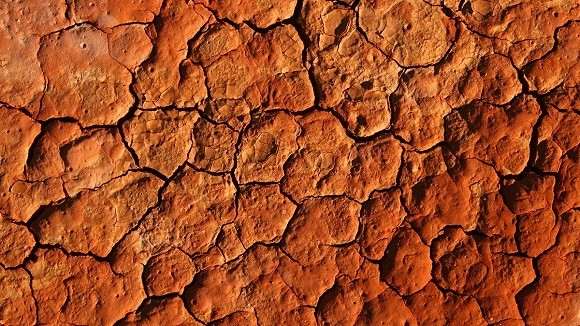
Alarming coastal vulnerability of the deltaic and sandy beaches of North Africa
- Abderraouf Hzami
- Essam Heggy
- Saâdi Abdeljaouad
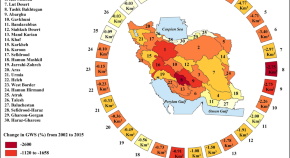
Anthropogenic drought dominates groundwater depletion in Iran
- Samaneh Ashraf
- Amir AghaKouchak
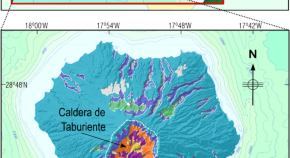
Detection of volcanic unrest onset in La Palma, Canary Islands, evolution and implications
- José Fernández
- Joaquín Escayo
- Eumenio Ancochea
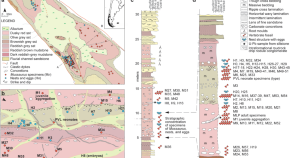
Earliest evidence of herd-living and age segregation amongst dinosaurs
- Adriana C. Mancuso
- Vincent Fernandez

Gradual onset of the Maunder Minimum revealed by high-precision carbon-14 analyses
- Hiroko Miyahara
- Fuyuki Tokanai
- Hideyuki Hotta
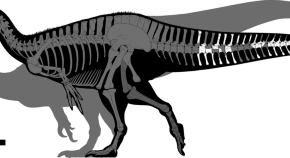
New spinosaurids from the Wessex Formation (Early Cretaceous, UK) and the European origins of Spinosauridae
- Chris T. Barker
- David W. E. Hone
- Neil J. Gostling

Organic matter and water from asteroid Itokawa
- Q. H. S. Chan
- A. Stephant
- M. M. Grady
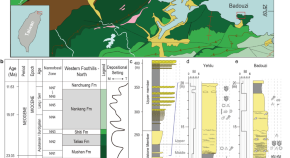
The 20-million-year old lair of an ambush-predatory worm preserved in northeast Taiwan
- Masakazu Nara
- Shahin E. Dashtgard
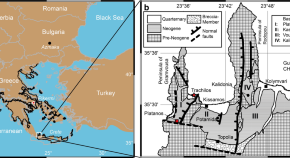
Age constraints for the Trachilos footprints from Crete
- Uwe Kirscher
- Haytham El Atfy
- Madelaine Böhme
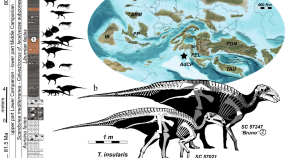
An Italian dinosaur Lagerstätte reveals the tempo and mode of hadrosauriform body size evolution
- Alfio Alessandro Chiarenza
- Matteo Fabbri
- Federico Fanti
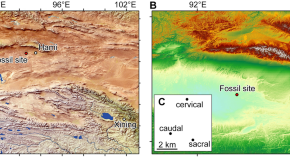
The first dinosaurs from the Early Cretaceous Hami Pterosaur Fauna, China
- Xiaolin Wang
- Kamila L. N. Bandeira
- Alexander W. A. Kellner
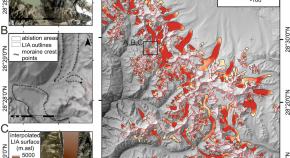
Accelerated mass loss of Himalayan glaciers since the Little Ice Age
- Jonathan L. Carrivick
- Lee E. Brown
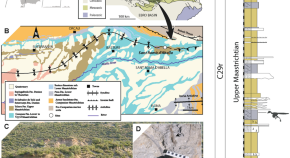
A fast-growing basal troodontid (Dinosauria: Theropoda) from the latest Cretaceous of Europe
- Albert G. Sellés
- Bernat Vila
- Àngel Galobart
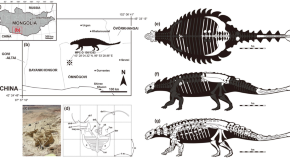
A new ankylosaurid from the Upper Cretaceous Nemegt Formation of Mongolia and implications for paleoecology of armoured dinosaurs
- Jin-Young Park
- Yuong-Nam Lee
- Michael J. Polcyn
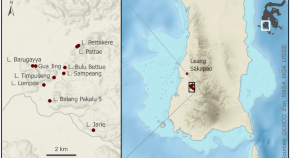
The effects of climate change on the Pleistocene rock art of Sulawesi
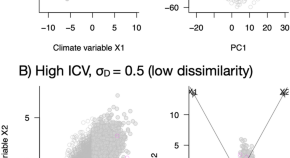
Novel and disappearing climates in the global surface ocean from 1800 to 2100
- Katie E. Lotterhos
- Áki J. Láruson
- Li-Qing Jiang
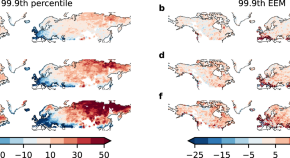
Regions of intensification of extreme snowfall under future warming
- Lennart Quante
- Sven N. Willner
- Anders Levermann
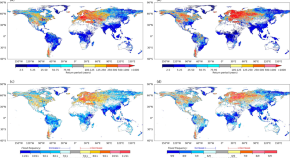
Global exposure to flooding from the new CMIP6 climate model projections
- Yukiko Hirabayashi
- Masahiro Tanoue
- Dai Yamazaki
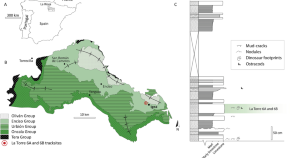
Fast-running theropods tracks from the Early Cretaceous of La Rioja, Spain
- Pablo Navarro-Lorbés
- Javier Ruiz
- Angélica Torices
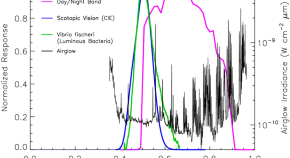
Honing in on bioluminescent milky seas from space
- Steven D. Miller
- Steven H. D. Haddock
- SungHyun Nam
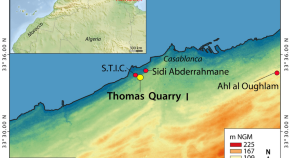
First high resolution chronostratigraphy for the early North African Acheulean at Casablanca (Morocco)
- Rosalia Gallotti
- Giovanni Muttoni
- Jean-Paul Raynal
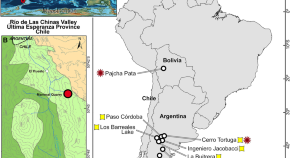
New cladotherian mammal from southern Chile and the evolution of mesungulatid meridiolestidans at the dusk of the Mesozoic era
- Agustín G. Martinelli
- Sergio Soto-Acuña
- Alexander O. Vargas
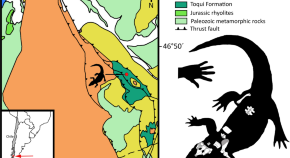
New transitional fossil from late Jurassic of Chile sheds light on the origin of modern crocodiles
- Fernando E. Novas
- Federico L. Agnolin
- Marcelo P. Isasi
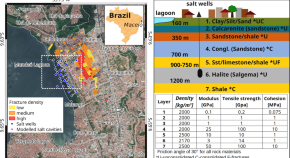
A decade-long silent ground subsidence hazard culminating in a metropolitan disaster in Maceió, Brazil
- Magdalena Vassileva
- Djamil Al-Halbouni
- Hans-Ulrich Wetzel

Application of hyperspectral remote sensing for supplementary investigation of polymetallic deposits in Huaniushan ore region, northwestern China
- Yu-qing Wan
- Mou-shun Jin

The formation of araneiforms by carbon dioxide venting and vigorous sublimation dynamics under martian atmospheric pressure
- Lauren Mc Keown
- J. N. McElwaine
- M. R. Patel
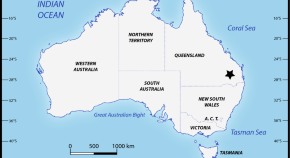
First record of a tomistomine crocodylian from Australia
- Jorgo Ristevski
- Gilbert J. Price
- Steven W. Salisbury
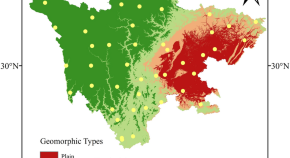
Spatiotemporal drought analysis by the standardized precipitation index (SPI) and standardized precipitation evapotranspiration index (SPEI) in Sichuan Province, China
- Changhong Liu
- Cuiping Yang
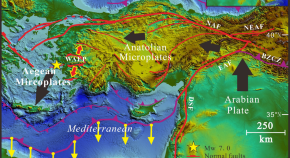
Greece and Turkey Shaken by African tectonic retreat
- Jiannan Meng
- Ozan Sinoplu
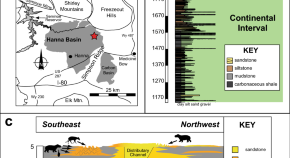
Earliest evidence of marine habitat use by mammals
- Anton F.-J. Wroblewski
- Bonnie E. Gulas-Wroblewski
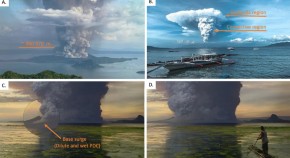
Hazardous base surges of Taal’s 2020 eruption
- A. M. F. Lagmay
- M. I. R. Balangue-Tarriela
- N. Rosell II
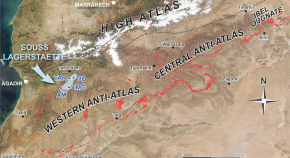
The Souss lagerstätte of the Anti-Atlas, Morocco: discovery of the first Cambrian fossil lagerstätte from Africa
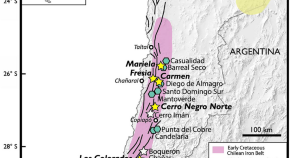
Thermal evolution of Andean iron oxide–apatite (IOA) deposits as revealed by magnetite thermometry
- Gisella Palma
- Martin Reich
- Adam C. Simon
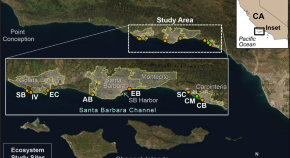
Multiple climate change-driven tipping points for coastal systems
- Patrick L. Barnard
- Jenifer E. Dugan
- Sam F. Iacobellis
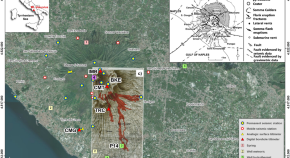
Tracking the recent dynamics of Mt. Vesuvius from joint investigations of ground deformation, seismicity and geofluid circulation
- Simona Petrosino
- Paolo Madonia
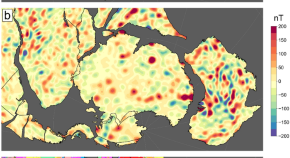
East Antarctica magnetically linked to its ancient neighbours in Gondwana
- Jörg Ebbing
- Yixiati Dilixiati
- Stephanie Scheiber-Enslin
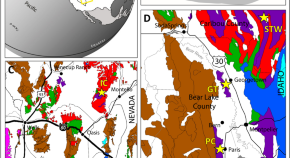
Exceptional fossil assemblages confirm the existence of complex Early Triassic ecosystems during the early Spathian
- Christopher P. A. Smith
- Thomas Laville
- Arnaud Brayard
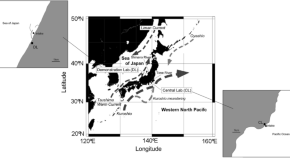
Long-term ocean acidification trends in coastal waters around Japan
- Hiroshi Ishida
- Ryosuke S. Isono
- Yutaka W. Watanabe
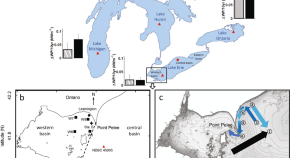

Increases in Great Lake winds and extreme events facilitate interbasin coupling and reduce water quality in Lake Erie
- Aidin Jabbari
- Josef D. Ackerman
- Yingming Zhao
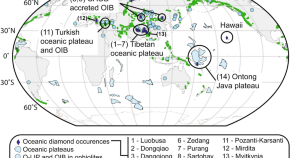
Oceanic and super-deep continental diamonds share a transition zone origin and mantle plume transportation
- Luc S. Doucet
- Zheng-Xiang Li
- Hamed Gamal El Dien
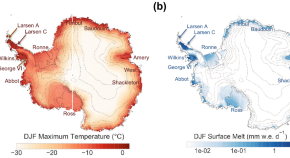
Warming events projected to become more frequent and last longer across Antarctica
- Sarah Feron
- Raúl R. Cordero
- Pedro Llanillo
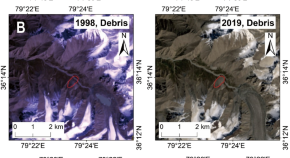
Increase in occurrence of large glacier-related landslides in the high mountains of Asia

Volcanic activity sparks the Arctic Oscillation
- Weizheng Qu
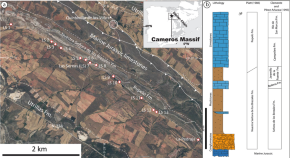
Enigmatic tracks of solitary sauropods roaming an extensive lacustrine megatracksite in Iberia
- Fidel Torcida Fernández-Baldor
- I. Díaz-Martínez
- D. Castanera
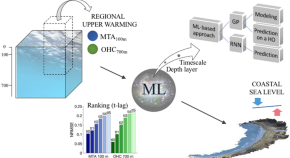
Predicting regional coastal sea level changes with machine learning
- Veronica Nieves
- Cristina Radin
- Gustau Camps-Valls
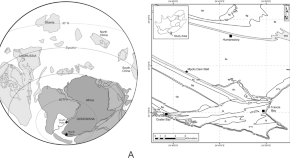
An early Devonian flora from the Baviaanskloof Formation (Table Mountain Group) of South Africa
- Robert W. Gess
- Cyrille Prestianni

Magnitude of the 8.2 ka event freshwater forcing based on stable isotope modelling and comparison to future Greenland melting
- Wilton Aguiar
- Katrin J. Meissner
- Mauricio M. Mata
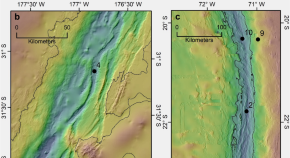
High mercury accumulation in deep-ocean hadal sediments
- Hamed Sanei
- Peter M. Outridge
- Ronnie N. Glud
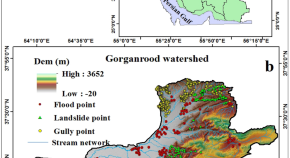
Evaluation of multi-hazard map produced using MaxEnt machine learning technique
- Narges Javidan
- Ataollah Kavian
- Jesús Rodrigo-Comino

The role of volcanic-derived clays in the preservation of Ediacaran biota from the Itajaí Basin (ca. 563 Ma, Brazil)
- Bruno Becker-Kerber
- Abderrazak El Albani
- Mírian L. A. F. Pacheco
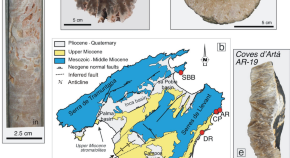
Sea-level stands from the Western Mediterranean over the past 6.5 million years
- Oana A. Dumitru
- Jacqueline Austermann
- Bogdan P. Onac
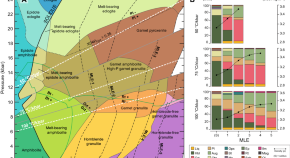
Archean continental crust formed by magma hybridization and voluminous partial melting
- Juan David Hernández-Montenegro
- Richard M. Palin
- David Hernández-Uribe
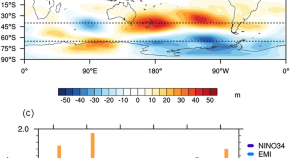
Why Australia was not wet during spring 2020 despite La Niña
- Debra Hudson
- Griffith Young
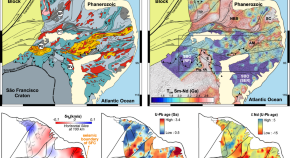
Decratonization by rifting enables orogenic reworking and transcurrent dispersal of old terranes in NE Brazil
- Carlos E. Ganade
- Roberto F. Weinberg
- Iago S. Costa
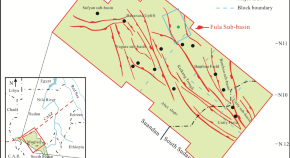
Sedimentology, petrography, and reservoir quality of the Zarga and Ghazal formations in the Keyi oilfield, Muglad Basin, Sudan
- Yousif M. Makeen
- Xuanlong Shan
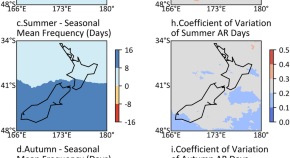
The impact of atmospheric rivers on rainfall in New Zealand
- Jingxiang Shu
- Asaad Y. Shamseldin
- Evan Weller

Decrease in volume and density of foraminiferal shells with progressing ocean acidification
- Azumi Kuroyanagi
- Takahiro Irie
- Kazuhiko Fujita
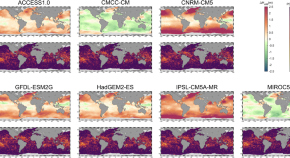
Future behavior of wind wave extremes due to climate change
- Hector Lobeto
- Melisa Menendez
- Iñigo J. Losada
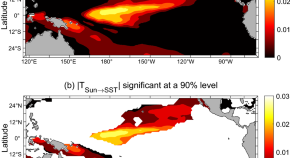
El Niño Modoki can be mostly predicted more than 10 years ahead of time
- X. San Liang

Exquisite air sac histological traces in a hyperpneumatized nanoid sauropod dinosaur from South America
- Tito Aureliano
- Aline M. Ghilardi
- Mathew J. Wedel

Climate and the latitudinal limits of subtropical reef development
- Lauren T. Toth
- William F. Precht
- Richard B. Aronson
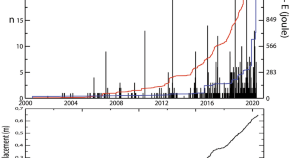
Statistics of seismicity to investigate the Campi Flegrei caldera unrest
- A. Tramelli
- G. Chiodini
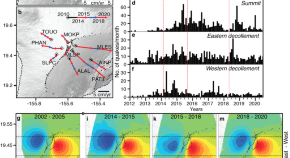
Southward growth of Mauna Loa’s dike-like magma body driven by topographic stress
- Bhuvan Varugu
- Falk Amelung
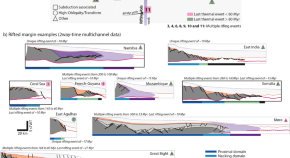
Rifted margins classification and forcing parameters
- J.-C. Ringenbach
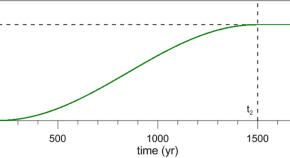
Tipping points induced by parameter drift in an excitable ocean model
- Stefano Pierini
- Michael Ghil
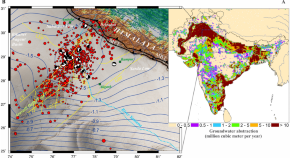
Groundwater extraction-induced seismicity around Delhi region, India
- Deepak K. Tiwari
- Birendra Jha
- Naresh K. Vissa
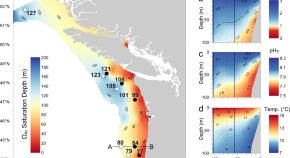
Pteropods make thinner shells in the upwelling region of the California Current Ecosystem
- Lisette Mekkes
- Willem Renema
- Katja T. C. A. Peijnenburg
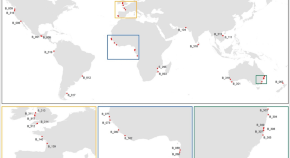
Twenty-first-century projections of shoreline change along inlet-interrupted coastlines
- Janaka Bamunawala
- Roshanka Ranasinghe
- Ad van der Spek

Hydro-climatic changes of wetlandscapes across the world
- G. Vigouroux

Ensemble bias correction of climate simulations: preserving internal variability
- Pradeebane Vaittinada Ayar
- Mathieu Vrac
- Alain Mailhot
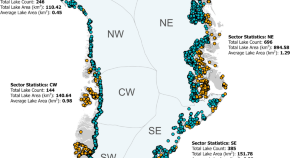
Greenland-wide inventory of ice marginal lakes using a multi-method approach
- Penelope How
- Alexandra Messerli
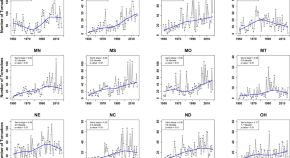
Explaining the trends and variability in the United States tornado records using climate teleconnections and shifts in observational practices
- Niloufar Nouri
- Naresh Devineni
- Reza Khanbilvardi
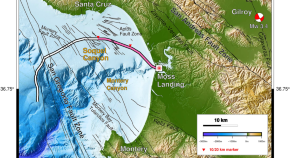
Utilizing distributed acoustic sensing and ocean bottom fiber optic cables for submarine structural characterization
- Jonathan B. Ajo-Franklin
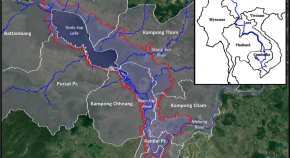
Projected plastic waste loss scenarios between 2000 and 2030 into the largest freshwater-lake system in Southeast Asia
- Alexander Matthew David Finnegan
- Christos Gouramanis
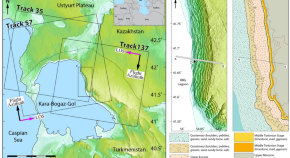
Transient motion of the largest landslide on earth, modulated by hydrological forces
- Gökhan Aslan
- Marcello De Michele
- Ziyadin Cakir
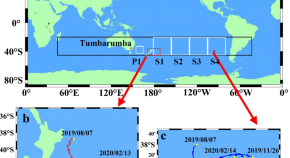
2019‒2020 Australian bushfire air particulate pollution and impact on the South Pacific Ocean
- Xuerong Sun
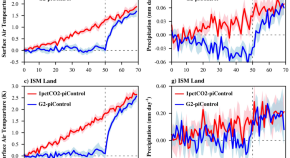
Response of the Indian summer monsoon to global warming, solar geoengineering and its termination
- Mansi Bhowmick
- Saroj Kanta Mishra
- Popat Salunke
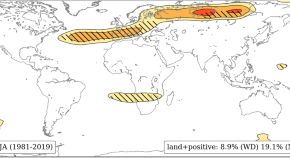
Atmosphere similarity patterns in boreal summer show an increase of persistent weather conditions connected to hydro-climatic risks
- Peter Hoffmann
- Jascha Lehmann
- Fred F. Hattermann
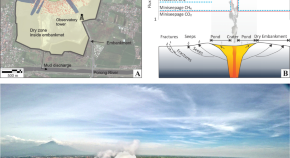
Relevant methane emission to the atmosphere from a geological gas manifestation
- Adriano Mazzini
- Alessandra Sciarra
- Alwi Husein

Saharan dust and giant quartz particle transport towards Iceland
- György Varga
- Pavla Dagsson-Waldhauserová
- Agusta Helgadottir
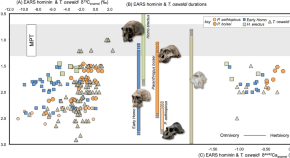
Contracting eastern African C 4 grasslands during the extinction of Paranthropus boisei
- Rhonda L. Quinn
- Christopher J. Lepre
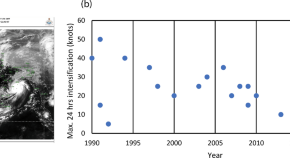
Role of warm ocean conditions and the MJO in the genesis and intensification of extremely severe cyclone Fani
- Vineet Kumar Singh
- Medha Deshpande
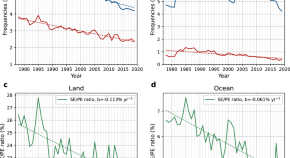
The latitudinal dependence in the trend of snow event to precipitation event ratio
- Shangyong Shi
- Guosheng Liu
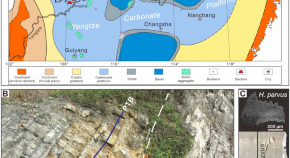
Different triggers for the two pulses of mass extinction across the Permian and Triassic boundary
- Zhongping Lai
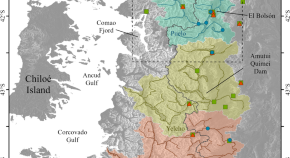
Hydrological droughts in the southern Andes (40–45°S) from an ensemble experiment using CMIP5 and CMIP6 models
- Rodrigo Aguayo
- Jorge León-Muñoz
- Aldo Montecinos
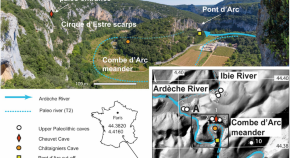
Dating the landscape evolution around the Chauvet-Pont d’Arc cave
- Kim Genuite
- Jean-Jacques Delannoy
- Pierre Voinchet
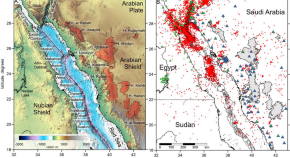
Transition from continental rifting to oceanic spreading in the northern Red Sea area
- Sami El Khrepy
- Ivan Koulakov
- Ayman N. Qadrouh

A case study on TBM cutterhead temperature monitoring and mud cake formation discrimination method
- Laikuang Lin
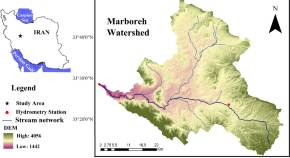
Groundwater recharge potential zonation using an ensemble of machine learning and bivariate statistical models
- Maryam Sadat Jaafarzadeh
- Naser Tahmasebipour
- Hamed Rouhani

Spatial–temporal characterization of rainfall in Pakistan during the past half-century (1961–2020)
- Ghaffar Ali
- Muhammad Sajjad
- Hafiza Nayab Gul
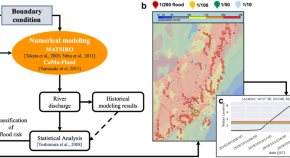
Applicability of a nationwide flood forecasting system for Typhoon Hagibis 2019
- Yuta Ishitsuka
- Kei Yoshimura
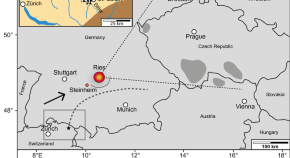
Shocked quartz in distal ejecta from the Ries impact event (Germany) found at ~ 180 km distance, near Bernhardzell, eastern Switzerland
- Sanna Holm-Alwmark
- Carl Alwmark
- Beda A. Hofmann
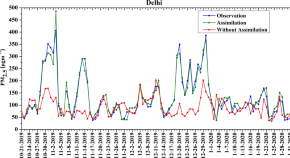
Performance of high resolution (400 m) PM 2.5 forecast over Delhi
- Chinmay Jena
- Sachin D. Ghude
- M. Rajeevan
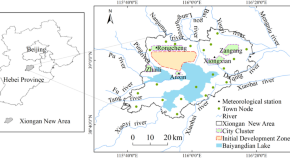
Projection of key meteorological hazard factors in Xiongan new area of Hebei Province, China
- Dapeng Huang
- Yaoming Liao
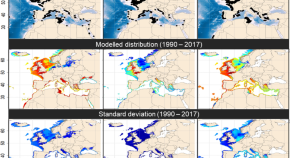
European cephalopods distribution under climate-change scenarios
- Alexandre Schickele
- Patrice Francour
- Virginie Raybaud
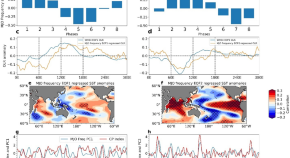
Interannual variability of the frequency of MJO phases and its association with two types of ENSO
- Panini Dasgupta
- Abirlal Metya
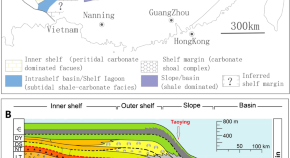
Origin of pyrite nodules at the top of the nantuo diamictites, Southern China
- Changjie Liu
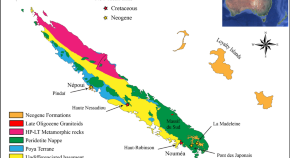
New fossil discoveries illustrate the diversity of past terrestrial ecosystems in New Caledonia
- Romain Garrouste
- Jérôme Munzinger
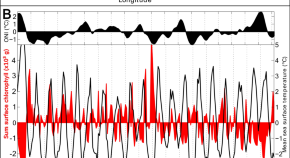
Galápagos upwelling driven by localized wind–front interactions
- Alexander Forryan
- Alberto C. Naveira Garabato
- Alexander R. Hearn
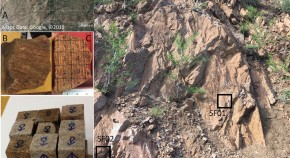
Plasma shielding removes prior magnetization record from impacted rocks near Santa Fe, New Mexico
- Gunther Kletetschka
- Radana Kavkova
Quick links
- Explore articles by subject
- Guide to authors
- Editorial policies
Research Topics List
JPL's charter is to conduct robotic space missions for NASA, to explore our own and neighboring planetary systems, understand the origin and evolution of the universe and make critical measurements to understand our home planet and help protect it. We do this by developing integrated capabilities in engineering, science and technology, in a unique environment that strives for excellence in any of the three areas. To be successful in our ability to implement missions for NASA, we foster research in those areas of space-based science that establish our leadership in the science community and those technologies that allow the innovations that are crucial to maintaining our competitive edge. Our science, technology and engineering research covers many areas of planetary, astrophysics and Earth science, both as basic research leading to new observations and mission concepts, as well as research based on the data acquired by JPL flight projects. Our technology research covers areas ranging from robotic systems, a range of in-situ and remote sensing instruments, deep space communications and navigation, information systems, precision flying and planetary protection and survivability.
- Write my thesis
- Thesis writers
- Buy thesis papers
- Bachelor thesis
- Master's thesis
- Thesis editing services
- Thesis proofreading services
- Buy a thesis online
- Write my dissertation
- Dissertation proposal help
- Pay for dissertation
- Custom dissertation
- Dissertation help online
- Buy dissertation online
- Cheap dissertation
- Dissertation editing services
- Write my research paper
- Buy research paper online
- Pay for research paper
- Research paper help
- Order research paper
- Custom research paper
- Cheap research paper
- Research papers for sale
- Thesis subjects
- How It Works
80+ Science Research Paper Topics Ideas For Students

Essay writing or writing dissertation is an integral part of education at any level, middle school, high school, or college. Some of the most common essays are on science research topics, and they are also quite interesting. However, choosing research paper topics isn’t as straightforward as you’d like. You’ll need to carry out a survey on and draw inspiration from several scientific research topics before finally choosing one. Choosing science topics, especially if they are argumentative essay topics , to write about can be a frustrating task, especially when science is a pretty wide subject. If you need inspiration on interesting science topics, we’ll give you some science research paper ideas. But, first, let’s talk about how to choose the best science research paper topics – it makes things easier.
What Are Some Science Topics You Can Write About?
Interesting science research topics, ideas of science research topics for high school students, science research topics for college students, science research topics for middle school, scientific research question examples, science presentation ideas, cool science topics to research, ideas of scientific topics for research on nanotechnology, fascinating ideas for science research projects, interesting science topics for high school research papers, tips for choosing science research topics.
Being a very broad subject, students often find choosing a science topic for a research paper difficult. However, the secret is knowing what scientific research questions will make for a good paper, and what people will want to read. So, when choosing science topics for papers, here are tips you can follow to make the task easier.
- Choose cool science topics you’re interested in and that’ll interest your readers.
- Search online for research question examples science for ideas on what your paper should be about.
- Avoid choosing too-broad research topics for high school, to ensure your work is well detailed.
- Consider contemporary scientific research questions concerning recent happenings; they can be fun to write
- Read your notes and online academic papers for inspiration on good science research paper topics.
- Choose simple but highly informative research topics for high school students.
- Choose good science topics you have some knowledge of and can confidently talk about.
- Learn how to choose science topics for high school to make things easier.
- Be familiar with the dos and don’ts of choosing scientific research paper topics.
- Choose a scientific topic for research papers that has enough accessible information.
The Dos and Don’ts of Choosing Science Topics
Knowing the dos and don’ts of choosing a science title helps you select a good topic and ultimately write an outstanding paper. So, when searching for science topics for presentations,
- Do understand that there are different topics in science you can research on;
- Do read extensively for science research paper ideas; it helps you know what to write about;
- Don’t include words like “Research of” or “Study of” in your chosen science topics to research;
- Don’t choose high school science research paper topics with scanty or inaccessible information available;
- Do check online for interesting science research ideas on how to write your paper;
- Feel free to ask your instructor, colleagues, or seniors for scientific research ideas.
When searching for interesting science topics or social media research topics related to science to writing on, you will find different ones on different subjects, which can be confusing. You can follow the tips we listed for choosing science-related topics for a research paper. Meanwhile, here are some science paper topics you can use if none is forthcoming.
- Is there a move for the Covid-19 vaccine?
- What “flattening the curve” means
- Molecular evidence of humans interbreeding with Neanderthals
- Impact of cardio exercise on heart health
- The importance of exploring the solar system
- Can a comet strike the earth?
- The Hubble Space Telescope
- Top ten chemistry careers
- Acid rain effect aquatic plants’ growth
- Room color and human behavior
- How can plants grow in pots?
- Water’s surface tension weight capacity
- What does the paleo diet mean?
- Is Pluto still a planet?
- The future of commercial space flight
- Do you inherit fingerprint patterns?
- Ways in which handwashing prevents the spread of the Covid-19 virus
- Molecular biological research on rare genetic disorders impact on understanding cancer
- Do men pass on genetic abnormalities to their posterity as they age?
- How can men’s exercise affect the traits they pass on to their children?
- Is there really life on Mars; has there ever been?
- Ways of solving the problem of junk space
- The importance of Dark Matter
- Black holes
- Different ways to keep ice from defrosting
- Are pet hairs harmful to the human body?
- Some of the germs you’ve seen in your school
- The effect of music on your assimilation ability
- The types of food dogs prefer the best
- Good hygienic practices for keeping clean
- Foods that develop molds the fastest
- How different body parts aid the effective functioning of the system
- Do worms in the soil really affect plant growth and how?
- Can light brightness make plants grow well?
- What kinds of fertilizers work best, chemical or natural?
- Can mice (or any animal of your choice) learn?
- How can age affect the human reaction?
- Why does water boil faster when put in salt?
- Can food affect the heart, how?
- Can background noise interfere with learning and assimilation?
- Can Higgs Boson destroy the universe?
- Effects of sunspots on man
- Should humans live in space?
- The most important technological innovations in medicinal chemistry in recent years
- The danger of chemicals emitted from pharmaceutical companies
- The importance of big data and bioinformatics to chemical research
- The sugar chemistry behind making candy
- Biomacromolecules
- Trends in India’s medicinal chemistry research
- Nuclear fusion
- Reproduction in mammals
- How do fish mate?
- How useful are science museums in teaching science?
- Why do birds have beautiful feathers?
- The safety of offshore drilling
- The importance of climate change legislation
- Hydraulic fracking’s negative effects
- Uses of microelectronics
- Nanotechnology in medicine
- Nanotechnology for cancer treatment
- Can nanofibers repair brain injuries?
- Effect of nanomedicine on human lifespan
- Nanomaterial
- How nanotechnology helps in patient diagnosis
- How to reduce antibiotic use in agriculture
- The ethics of stem cell research
- The best leukemia treatment
- Gene therapy
- Causes of skin cancer
- Colonoscopy testing on colon cancer
- Why eliminating malaria is difficult
- The possibility of predicting the next pandemic
- Do childhood vaccines prevent diseases?
- How cells shield the body against diseases
- Should wild animals interact with humans?
- Are self-driving cars good?
- Regulating sugar use
- Different types of headaches
- Can migraine cause death?
- The ideal weight for living long
Feel free to choose from this scientific research topics list for your science research paper. There are many things to research where science is concerned, including stem research topics , among others. There is no shortage of scientific topics to research and choosing the best one gets easy when you know how to. If you’ve chosen a topic and you need help writing on them, you can contact our professional writing service. We have a team of experts who can write on any science topic and ensure you meet your deadline.
Curiosity Rover Science
Landing at Gale Crater, Mars Science Laboratory is assessing whether Mars ever had an environment capable of supporting microbial life. Determining past habitability on Mars gives NASA and the scientific community a better understanding of whether life could have existed on the Red Planet and, if it could have existed, an idea of where to look for it in the future.
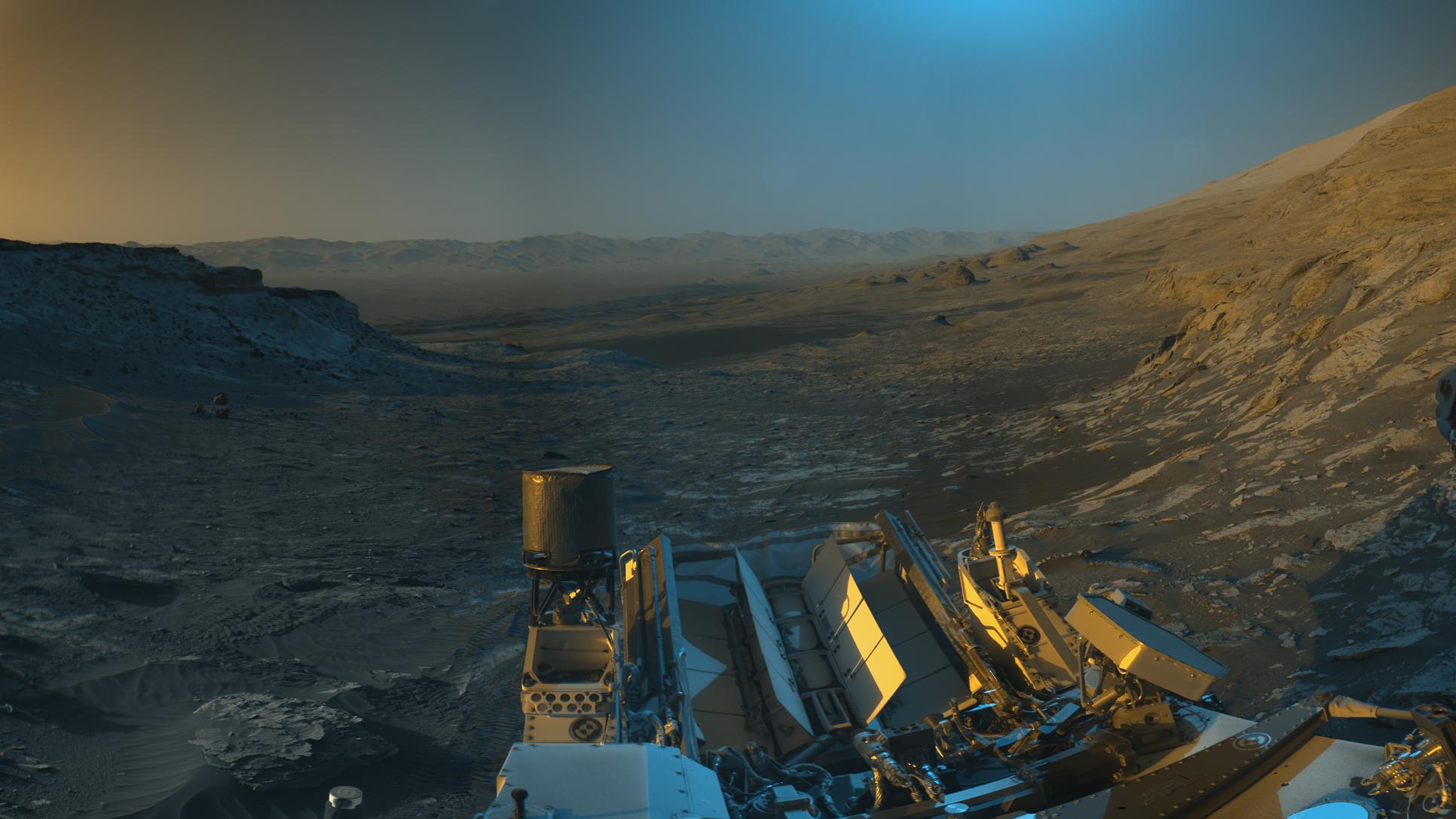
Science Objectives
To contribute to the four Mars exploration science goals and meet its specific goal of determining Mars' habitability, Curiosity has the following science objectives:
Biological objectives
Geological and geochemical objectives, planetary process objectives, surface radiation objective.
1. Determine the nature and inventory of organic carbon compounds 2. Inventory the chemical building blocks of life (carbon, hydrogen, nitrogen, oxygen, phosphorous, and sulfur) 3. Identify features that may represent the effects of biological processes
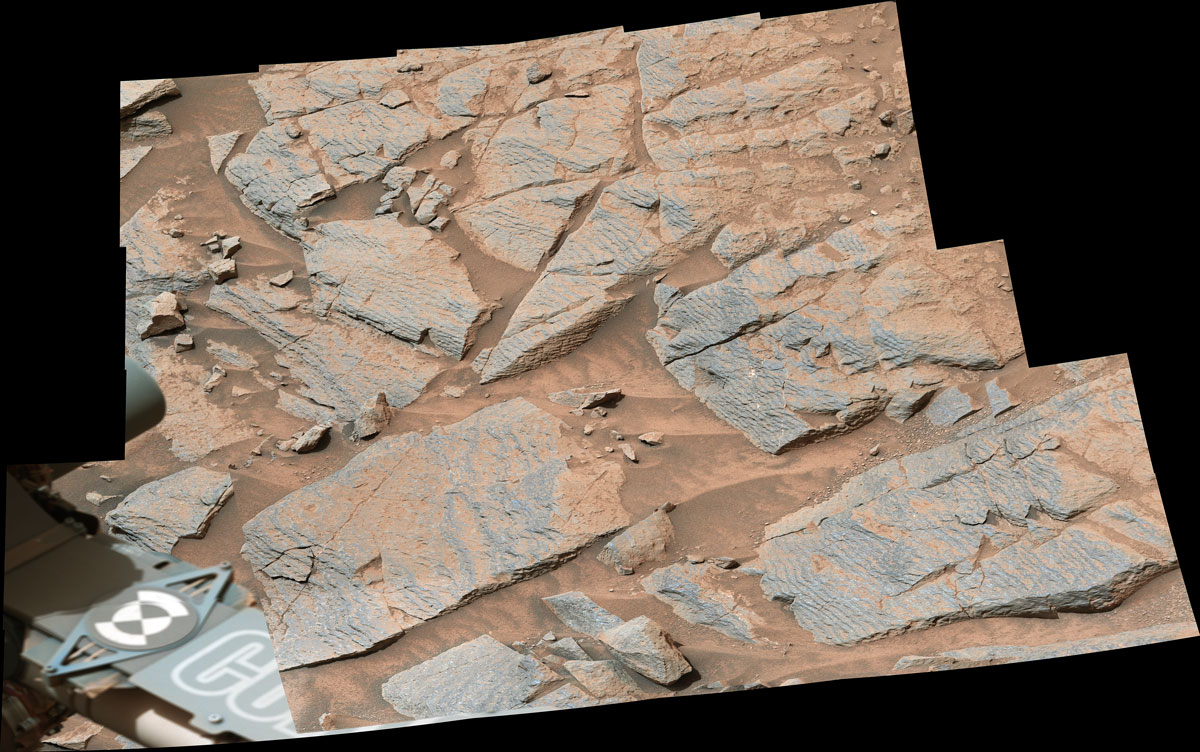
1. Investigate the chemical, isotopic, and mineralogical composition of the Martian surface and near-surface geological materials 2. Interpret the processes that have formed and modified rocks and soils
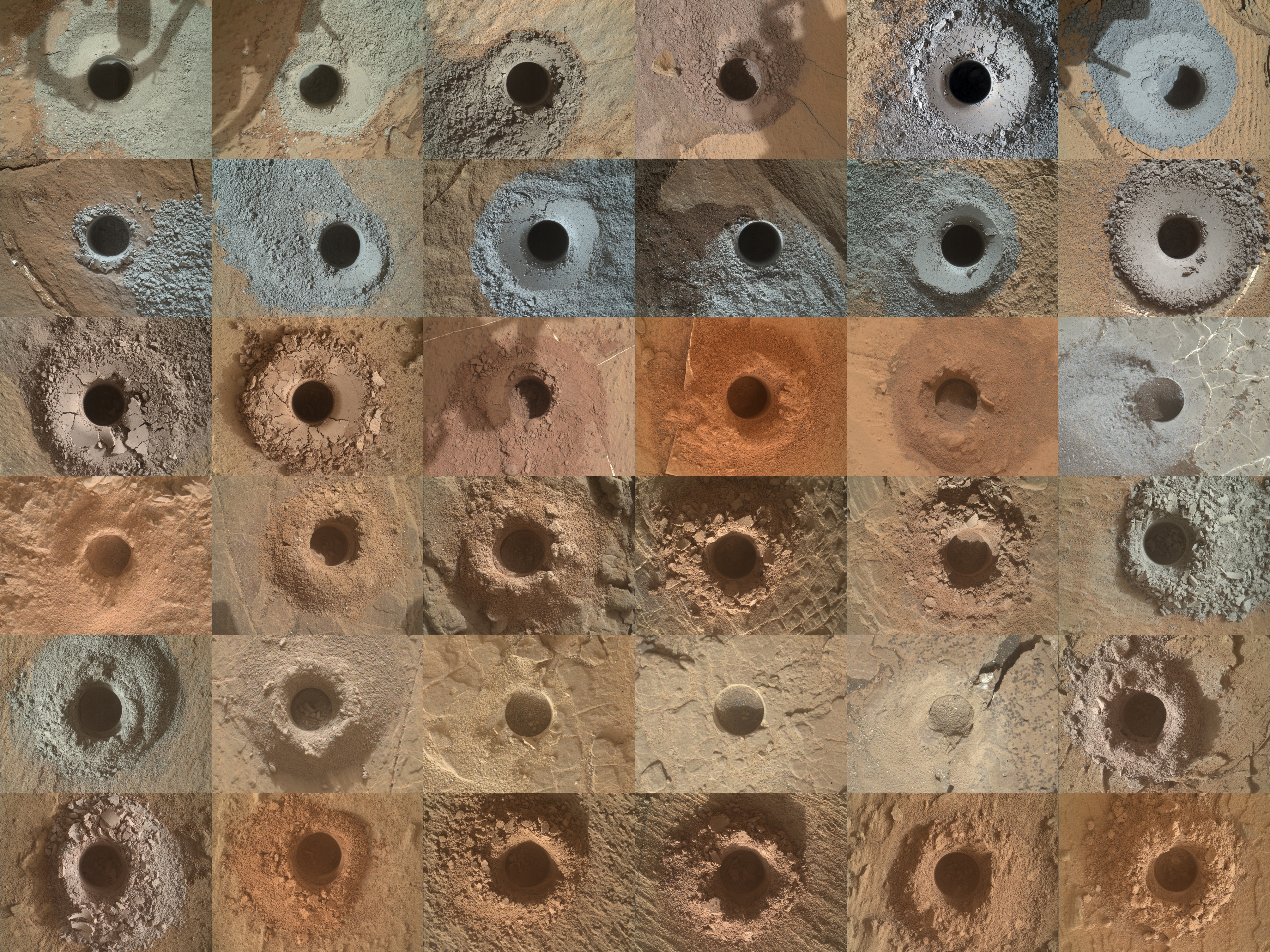
1. Assess long-timescale (i.e., 4-billion-year) atmospheric evolution processes 2. Determine present state, distribution, and cycling of water and carbon dioxide
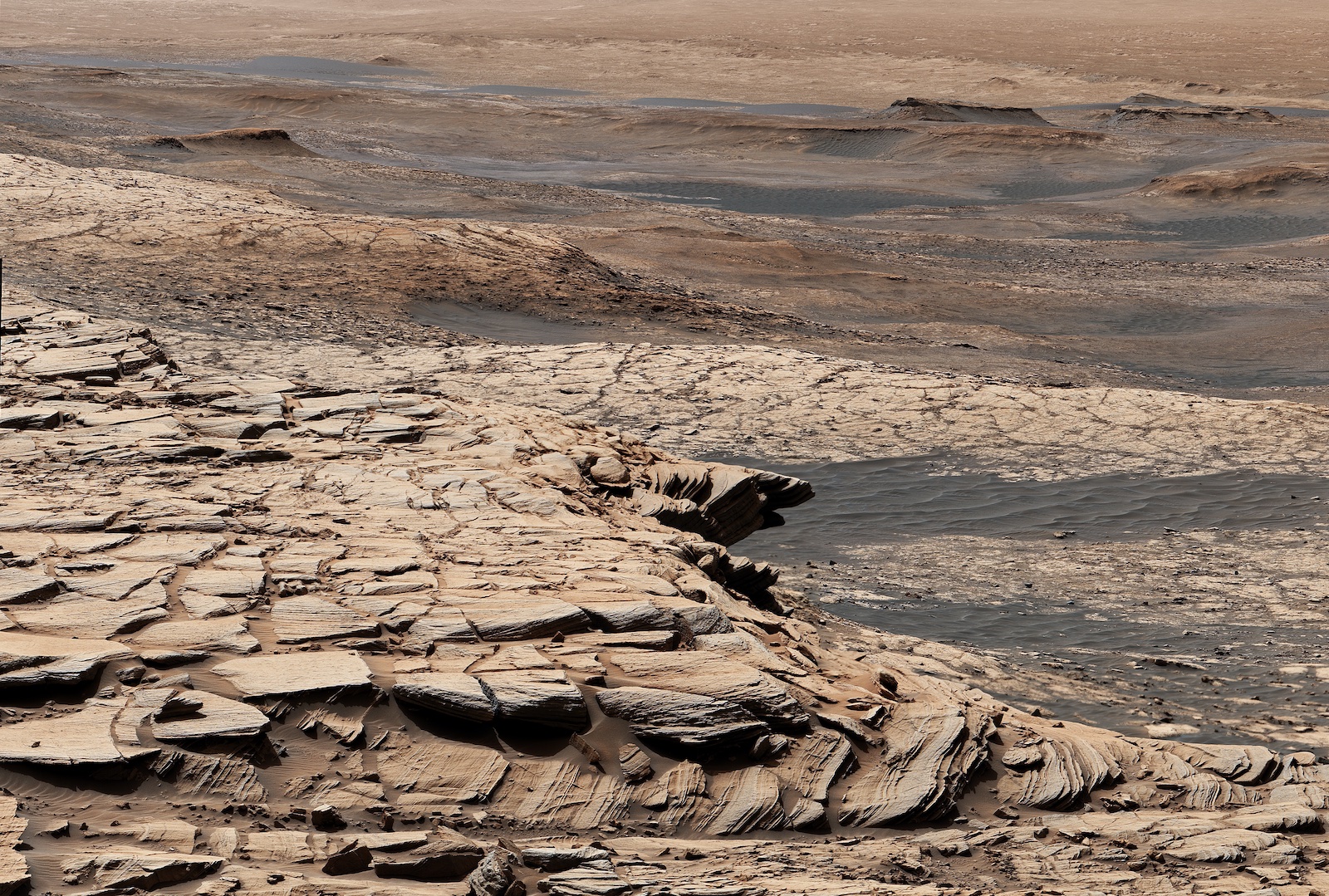
Characterize the broad spectrum of surface radiation, including galactic cosmic radiation, solar proton events, and secondary neutrons
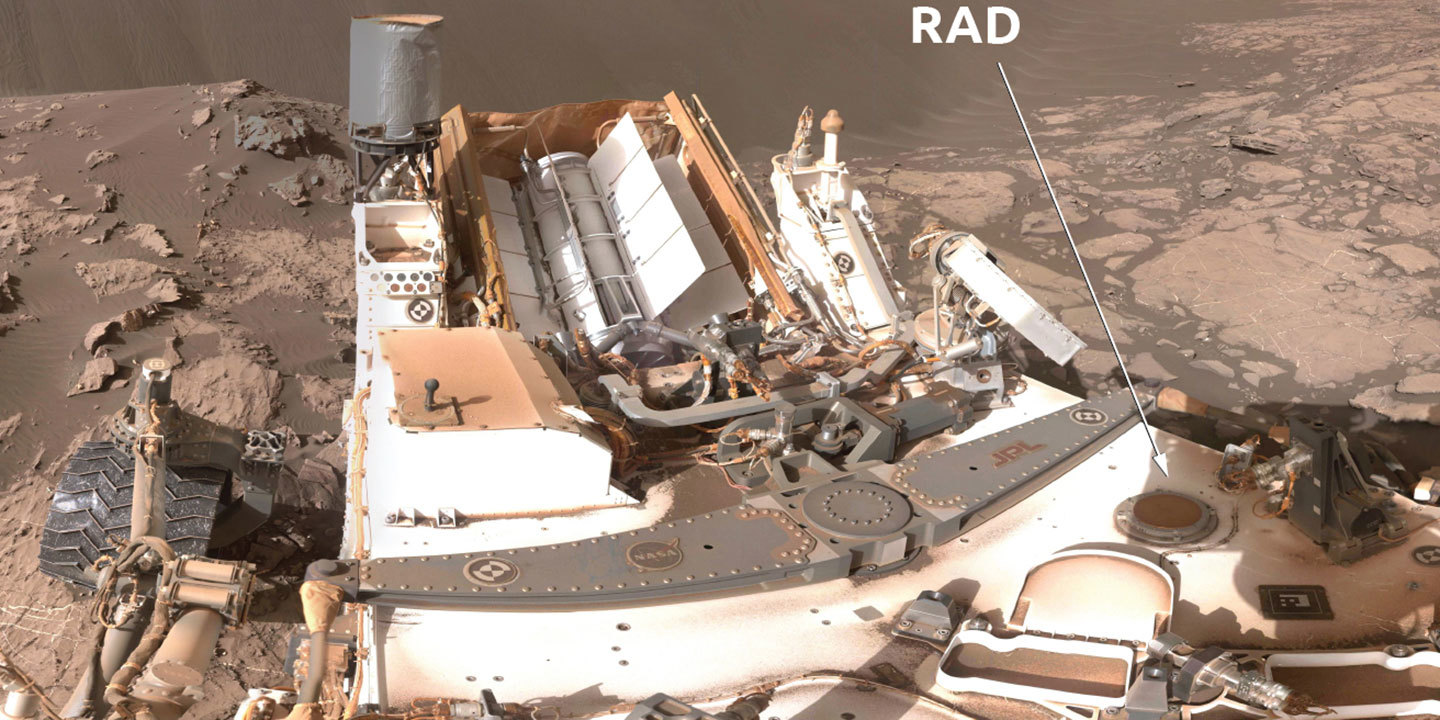
Science Highlights
With over a decade of exploration, Curiosity has unveiled the keys to some of science's most unanswered questions about Mars. Did Mars ever have the right environmental conditions to support small life forms called microbes? Early in its mission, Curiosity's scientific tools found chemical and mineral evidence of past habitable environments on Mars. It continues to explore the rock record from a time when Mars could have been home to microbial life.
Science Instruments
From cameras to environmental and atmospheric sensors, the Curiosity rover has a suite of state-of-the-art science instruments to achieve its goals.
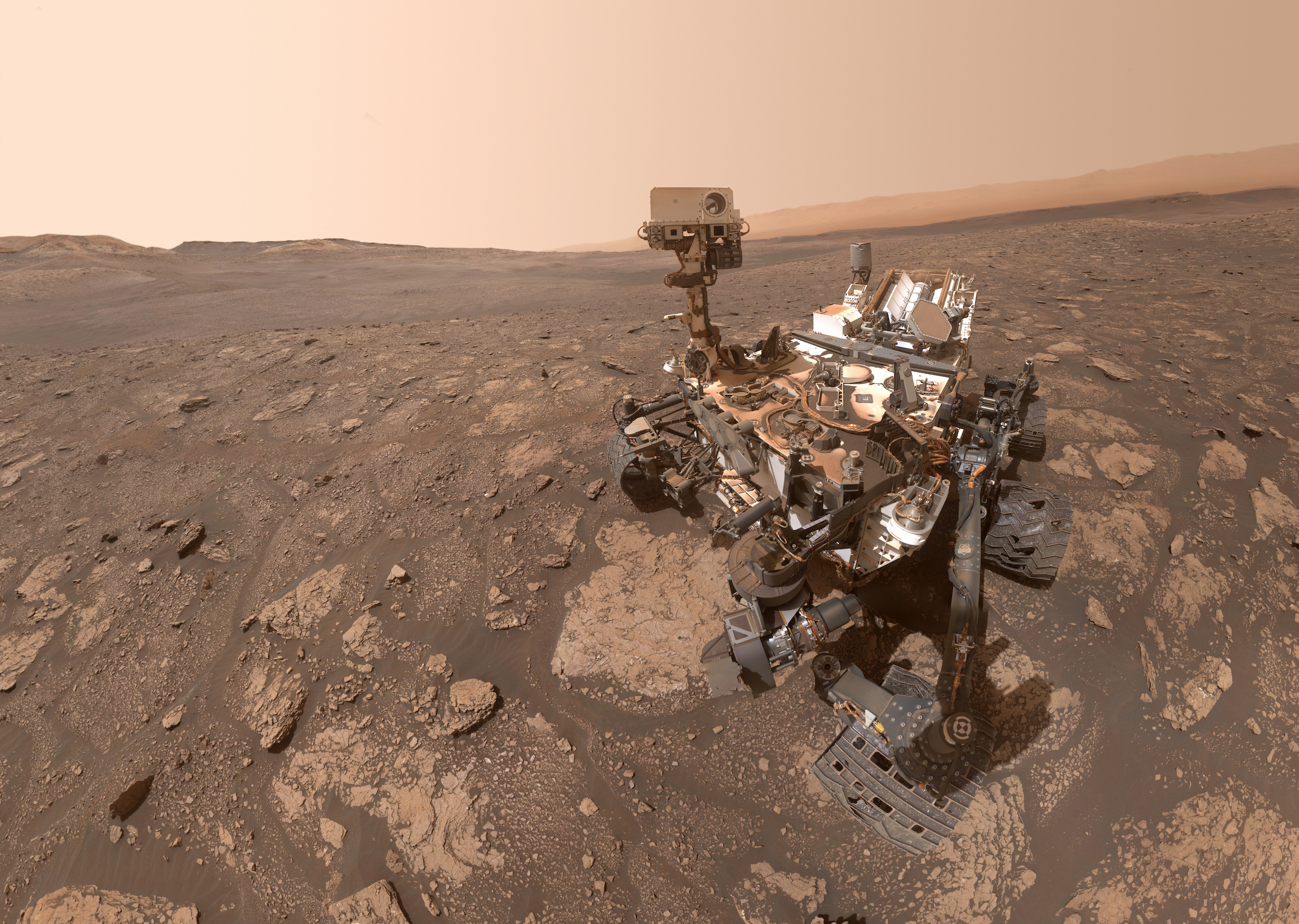
Discover More Topics From NASA
James Webb Space Telescope

Perseverance Rover

Parker Solar Probe

Main Content
Plant science - research topics.
The following Research Topics are led by experts in their field and contribute to the scientific understanding of plant-science. These Research topics are published in the peer-reviewed journal Frontiers in Plant Science , as open access articles .

Utilizing Machine Learning with Phenotypic and Genotypic Data to enhance Effective Breeding in Agricultural and Horticultural Crops
Changing climate is driving frequent extreme weather events such as increased drought, and unpredictable seasonal precipitation, resulting in increased salinity, and shifts in pest pressures. Furthermore, changing climate has resulted in shifts in gr...

The Regulation of Secondary Plant Cell Wall Formation
Secondary cell walls (SCWs) are the main constituent of plant biomass. SCWs are synthesized in specific cells such as tracheary elements and fibers. These SCWs not only provide mechanical support to the plant body and enable long-distance water trans...

Plant Parasitic Nematode–Host Interactions: Mechanisms and Exploitative Management Strategies
Plant parasitic nematodes (PPN) are pathogens common in global agricultural systems. There is at least one species of PPN for all major food crops and yield losses caused by nematodes threaten global food security. Management of PPN is challenging an...

Virome Analysis for the Identification of Emerging and Re-Emerging Viruses in Plants
The advent of next-generation sequencing (NGS) technology, including pyrosequencing (454; Roche) and sequencing by synthesis (Solexa genome analyzer; Illumina), has facilitated the use of metagenomic analyses to characterize viruses in many host plan...

Chilling Tolerance and Regulation of Horticultural Crops: Physiological, Molecular, and Genetic Perspectives
Chilling injury affects crops in the tropical and subtropical regions. Damage can include surface pitting, discolouration, internal breakdown, water soaking, failure to ripen, growth inhibition, wilting, loss of flavour, and decay. Post-harvest handl...

Applicative and Ecological Aspects of Mycorrhizal Symbioses
Mycorrhizal symbioses, a mutual association between plants and fungi plays a vital role in shaping and balancing the ecosystem of our planet. Approximately 80% of vascular plant species form mycorrhizal associations between their roots and soil borne...

Recent Advances in Research and Development for Vegetable Crops Under Protected Cultivation
Protected cropping shelters crops from extreme climatic conditions by modifying the internal growing conditions in their favor. The technology has widely been used for vegetable crops in different climates such as temperate, tropical, subtropical, ar...

Infection and Colonization of Horticultural Crops by Microbial Pathogens
Horticultural crops are an integral part of economic growth and they contribute significantly to agricultural production. Plants can be infected by pathogenic oomycetes, fungi and bacteria that cause significant yield losses worldwide and have a grea...

Current Advances in Botrytis cinerea: Biology, Pathogenesis and Interaction with Host Plants
Better known to wine connoisseurs as the “noble rot”, Botrytis cinerea is indeed an important plant pathogen with a very diverse host range, causing gray mold disease in over 1000 plant species, including most vegetable and fruit crops, trees, and fl...
Premium Content
- MIND, BODY, WONDER
Can aspirin help protect against colorectal cancers?
A new study details how a daily dose could prevent or delay the progression of the world’s third most common type of cancer.

Aspirin is well known for its ability to ease pain from muscle aches and headaches; it reduces fevers; and low doses can thin blood, reducing the chance of clots that cause strokes and heart attacks. Now a new study suggests it may also play a role in colorectal cancer prevention.
Colorectal cancer, a cancer of either the large intestine or rectum, is the third most common type of cancer, and the second most common cause of death from cancer , worldwide. There were 1.9 million new cases diagnosed across the globe in 2020, according to the World Health Organization, and these numbers are expected to grow. In the United States, the rates of colorectal cancers have been rising in people younger than age 50 since the 1990s, which includes more young people dying from the disease, according to the National Cancer Institute .
Now a new study published in the journal Cancer shows that colorectal cancer patients who took a daily dose of aspirin had a lower rate of metastasis to the lymph nodes and stronger immune response to their tumors. The research suggests that aspirin may be boosting the ability of the immune system to hunt for cancer cells.
“It is a rather unexpected effect, because aspirin is mainly used as an anti-inflammatory drug,” says Marco Scarpa, a researcher at the University of Padova, and one of the authors of the study. As Scarpa notes, this study suggests that aspirin may be playing a slightly different role by stimulating the immune system’s surveillance response, which can then prevent or delay the progression of colorectal cancer.
Your immune system is always surveilling the body for cells that just aren’t right. When they find such cancer cells, they will kill them just as they would kill invading bacteria or viruses, says Cindy Kin , a surgeon at Stanford University, who specializes in colon and rectal surgery.

“The data about aspirin and cancer is really evolving,” says Maen Abdelrahim , an oncologist at Houston Methodist Hospital, who specializes in treating colorectal cancers. However, there are still a lot of unanswered questions about how aspirin can prevent and delay the progression of these cancers, as well as which subset of patients would benefit from a daily aspirin.
( Colon cancer is rising among young adults. Here are signs to watch for. )
People who take a consistent use of aspirin have a lower risk of colorectal cancer, “but it has to be balanced with the risks,” which includes the possibility of bleeding in the gastrointestinal tract, says Jeff Meyerhardt , an oncologist and co-director of the Colon and Rectal Cancer Center at the Dana-Farber Cancer Institute, in Boston.
Aspirin protects against colorectal cancer
There are several studies that suggest a link between aspirin and colorectal cancer prevention and delay. However, the mechanism by which aspirin does this is still unknown. That makes it hard to predict which patients will benefit the most.
In a 2020 meta-analysis , which analyzed the results of 45 observational studies, researchers found that regular aspirin use was associated with less incidence of colorectal cancer.
A low dose, between 75 and 100 milligrams, was associated with a 10 percent reduction in the risk of developing colorectal cancer; a regular dose of 325 milligrams was associated with a 35 percent decline.
Other studies have shown a link between daily aspirin and a delayed progression , including a lower risk of dying in patients who had already been diagnosed with colorectal cancer.
“What has been seen in multiple studies for colorectal cancers is that having a more robust immune reaction does seem to have a better outcome,” Meyerhardt says. “This is looking at how aspirin may interact with that.”
Study suggests mechanism
In the study, researchers obtained tissue samples from 238 patients who had undergone surgery for the colorectal cancers. Of these patients, 12 percent were taking a daily low dose of aspirin for the prevention of heart disease. When compared to patients who were not taking aspirin, the researchers found a lower rate of metastasis to the lymph nodes, and higher numbers of immune cells that had infiltrated the tumors.
This higher level of infiltration is thought to be linked to slower cancer progression—including the lower rate of spread to the lymph nodes—by allowing immune cells to enter the tumor mass and fight the cancerous cells more effectively.
( Why is stomach cancer rising in young women? )
The researchers also found higher levels of immune markers that are responsible for triggering the immune system surveillance response. “It’s boosting the immune system, and it’s helping the immune system inside the tumor,” Abdelrahim says.
In recent years, the immune system’s role in protecting against the development of cancer has become recognized.
Patients with suppressed immune systems are at higher risk for developing cancers , compared to patients with a fully functional immune system. As these results suggest, aspirin may increase the vigilance of the immune system when it comes to the detection of colorectal cancers.
“Your immune system is doing all of these things in the background, that you’re not even aware of,” Kin says. “It’s not just the tumor’s behavior and how aggressive it’s going to be, but it’s your body versus the tumor.”
Related Topics
- INFLAMMATION
- DIGESTIVE SYSTEM
You May Also Like

Can vitamin D help fight cancer?

These 4 medicinal herbs may help keep men healthy

Why is stomach cancer rising in young women?

How exercise can help—or hurt—your digestion

These microbes found in tumors promote cancer. What if we just kill them?
- Environment
- Perpetual Planet
History & Culture
- History & Culture
- History Magazine
- Mind, Body, Wonder
- Paid Content
- Terms of Use
- Privacy Policy
- Your US State Privacy Rights
- Children's Online Privacy Policy
- Interest-Based Ads
- About Nielsen Measurement
- Do Not Sell or Share My Personal Information
- Nat Geo Home
- Attend a Live Event
- Book a Trip
- Inspire Your Kids
- Shop Nat Geo
- Visit the D.C. Museum
- Learn About Our Impact
- Support Our Mission
- Advertise With Us
- Customer Service
- Renew Subscription
- Manage Your Subscription
- Work at Nat Geo
- Sign Up for Our Newsletters
- Contribute to Protect the Planet
Copyright © 1996-2015 National Geographic Society Copyright © 2015-2024 National Geographic Partners, LLC. All rights reserved
An official website of the United States government
Here's how you know
Official websites use .gov A .gov website belongs to an official government organization in the United States.
Secure .gov websites use HTTPS. A lock ( Lock Locked padlock ) or https:// means you've safely connected to the .gov website. Share sensitive information only on official, secure websites.

New NSF awards support future Centers for Research and Innovation in Science, the Environment and Society
The U.S. National Science Foundation is investing over $1.4 million in projects that can serve as the first steps toward developing large centers for conducting multidisciplinary research activity. To help generate effective and long-lasting solutions that benefit the U.S. public, NSF's Directorate for Social, Behavioral and Economic Sciences (SBE) is supporting planning efforts to inform potential Centers for Research and Innovation in Science, the Environment and Society (CRISES).
Through the CRISES opportunity, center researchers will develop evidence-based solutions that address fundamental quality-of-life issues, such as the environment, sustainability, climate change, community development, social equity, workforce development and human well-being. These one-to-two-year projects bring together experts from numerous disciplines to explore the creation of centers to study and develop solutions to one or more pressing societal issues.
SBE's former assistant director, Kellina Craig-Henderson, initiated the plan for the CRISES funding opportunity to address the need to work across disciplines to produce evidence-based solutions for human-centered problems that confront society. "Researchers funded by this opportunity may come from many disciplines within the social, behavioral and economic sciences, including decision sciences, risk analysis, policy and management studies, economics, psychology, geographic sciences and more," said Sylvia Butterfield, SBE's acting assistant director. "Although they draw from different theoretical perspectives and varied methodological tools, they all strive to improve our understanding of human-centered actions and behaviors."
So far, 13 planning grants and two conference grants have been made, including one planning grant in a state that is part of the Established Program to Stimulate Competitive Research, supporting areas in the U.S. that have historically received less federal support for research and development.
Below is a sampling of planning grants awarded in 2023. See a full list of projects funded by the CRISES program to date.
- University of Delaware researchers will establish a team to draw on social, health and engineering sciences to better understand and forewarn officials, policymakers and the public against unanticipated catastrophic events.
- University of Tennessee researchers will investigate how extreme weather in the Southeast U.S. disproportionately impacts disadvantaged communities. The scientists' plan to improve climate resilience also includes a workforce development plan for underrepresented populations, building a talent pipeline of future climate-resilience leaders.
- East Carolina University researchers will examine communities experiencing rapid population growth and the associated environmental, economic and social policy responses, focusing their efforts on building resiliency in rapidly developing communities.
- University of California Los Angeles researchers will bring research communities together to inform the public debate on housing and homelessness.
- University of Massachusetts researchers will study how climate change impacts lead to disparate quality-of-life outcomes in communities, with an emphasis on climate resilience.
- Cornell University researchers will focus on building collaborative relationships between civil and public sector stakeholders using New York City as the project's urban laboratory and training center for the next generation of urban climate change researchers.
For more information, visit the Centers for Research and Innovation in Science, the Environment and Society webpage and read the Dear Colleague Letter: Catalyzing Human-Centered Solutions through Research and Innovation in Science, the Environment and Society .
Research areas

Time’s up for non-compete agreements

Non-compete agreements can hurt workers – limiting mobility, suppressing wages, and restricting job choice. So why are they still enforceable in many states? They may not be for much longer.
The Federal Trade Commission (FTC) just approved a new rule in a 3-2 vote on Tuesday that would render non-compete agreements unenforceable “for the vast majority of workers.” And our recent working paper helped inform the FTC’s thinking in its final rule about how banning non-competes might boost innovation.
Proponents of non-compete agreements often argue that harm to workers is outweighed by large positive effects on innovation – the idea being that companies will be more willing to invest in research and development if they know that their employees cannot leave and take ideas to a competitor.
Innovation can be worth sacrificing for. Innovation can “grow the pie” that we all rely on by accelerating economic growth. Unfortunately, this is not the case with non-competes.
Our research finds that the current impact of non-competes on innovation is negative. Using detailed data on patenting, firm entry, and the state-level enforceability of non-competes around the United States, we show that patenting actually declines significantly following increases in enforceability.
We began work on this project prior to the FTC’s proposal to ban non-competes at the federal level in January 2023 , but our findings quickly became relevant to the debate that followed that announcement. Although we do not claim that banning non-competes would maximize innovation, we offer evidence that making non-competes less enforceable than they currently are would likely benefit innovation. Ultimately, our paper, in tandem with concurrent work by another team of economists who reached a similar conclusion, was given “substantial weight” in the FTC’s final rule.
Our work was also uniquely cited by the FTC rule as providing evidence of the “potentially central role for knowledge spillovers, which are hampered when worker mobility is diminished.” We provide direct evidence on this piece of the puzzle. By tracking inventors across firms over time, we estimate inventor-specific mobility effects and find, for example, that inventors switched jobs 22% less following an average-sized increase in non-compete enforceability. This parallels our finding that firms patent 13% less following such a change.
The new FTC rule bans most non-competes nationwide and will become effective 120 days after publication in the Federal Register – although at least one lawsuit has already been filed, in Texas, to challenge the ban.
Our work on non-competes shows that innovation and worker protection may be complements rather than substitutes. Once in effect, the rule will hopefully generate new businesses, raise worker wages, and boost innovation, benefiting businesses and workers alike.
Kate Reinmuth (2022 cohort) and Emma Rockall are PhD candidates in economics at Stanford University. Kate is a Knight-Hennessy scholar jointly pursuing a JD at Stanford Law School. She aspires to work on national economic policy related to applied micro-economic topics ranging from innovation to inequality of opportunity to anticompetitive corporate behavior.
More News Topics
Social science takes the stage in a live storytelling event at the cantor arts center.
- In the news
Stanford students receive Paul & Daisy Soros Fellowships
John hennessy to receive the national science board vannevar bush award.
Research Topics & Ideas: Politics
100+ Politics-Related Research Ideas To Fast-Track Your Project

Finding and choosing a strong research topic is the critical first step when it comes to crafting a high-quality dissertation or thesis. If you’ve landed on this post, chances are you’re looking for a politics-related research topic , but aren’t sure where to start. Here, we’ll explore a variety of politically-related research ideas across a range of disciplines, including political theory and philosophy, comparative politics, international relations, public administration and policy.
NB – This is just the start…
The topic ideation and evaluation process has multiple steps . In this post, we’ll kickstart the process by sharing some research topic ideas. This is the starting point, but to develop a well-defined research topic, you’ll need to identify a clear and convincing research gap , along with a well-justified plan of action to fill that gap.
If you’re new to the oftentimes perplexing world of research, or if this is your first time undertaking a formal academic research project, be sure to check out our free dissertation mini-course. Also, be sure to sign up for our free webinar that explores how to find a high-quality research topic from scratch.
Overview: Politics-Related Topics
- Political theory and philosophy
- Comparative politics
- International relations
- Public administration
- Public policy
- Examples of politics-related dissertations
Topics & Ideas: Political Theory
- An analysis of the impact of feminism on political theory and the concept of citizenship in Saudi Arabia in the context of Vision 2030
- A comparative study of the political philosophies of Marxism and liberalism and their influence on modern politics
- An examination of how the Covid-19 pandemic affected the relationship between individual freedom and collective responsibility in political philosophy
- A study of the impact of race and ethnicity on French political philosophy and the concept of justice
- An exploration of the role of religion in political theory and its impact on secular democracy in the Middle East
- A Review of Social contract theory, comparative analysis of the political philosophies of Hobbes, Locke, and Rousseau
- A study of the concept of the common good in political philosophy and its relevance to the ongoing refugee crisis in Europe
- An examination of the relationship between political power and the rule of law in developing African countries
- A study of the impact of postmodernism on political theory and the concept of truth, a case study of the US
- An exploration of the role of virtue in political philosophy and its impact on the assessment of moral character in political leaders

Topics & Ideas: Comparative Politics
- A comparative study of different models of federalism and their impact on democratic governance: A case Study of South American federalist states
- The impact of ethnic and religious diversity on political stability and democracy in developing countries, a review of literature from Africa
- An analysis of the role of civil society in promoting democratic change in autocratic regimes: A case study in Sweden
- A comparative examination of the impact of globalization on political institutions and processes in South America and Africa.
- A study of the factors that contribute to successful democratization in authoritarian regimes, a review of the role of Elite-driven democratization
- A comparison of the political and economic systems of China and India and their impact on social development
- The impact of corruption on political institutions and democracy in South East Asia, a critical review
- A comparative examination of the impact of majoritarian representation (winner-take-all) vs proportional representation on political representation and governance
- An exploration of Multi-party systems in democratic countries and their impact on minority representation and policy-making.
- A study of the factors that contribute to successful decentralization and regional autonomy, a case study of Spain

Topics & Ideas: International Relations
- A comparative analysis of the effectiveness of diplomacy and military force in resolving international conflicts in Central Africa.
- The impact of globalization on the sovereignty of nation-states and the changing nature of international politics, a review of the role of Multinational Corporations
- An examination of the role of international aid organizations in promoting peace, security, and development in the Middle East.
- A study of the impact of economic interdependence on the likelihood of conflict in international relations: A critical review of weaponized interdependence
- A comparative analysis of the foreign policies of the EU and the US and their impact on international stability in Africa
- An exploration of the relationship between international human rights and national sovereignty during the Covid 19 pandemic
- A study of the role of decentralized autonomous organizations (DAO)s in international politics and their impact on state behaviour
- A comparative analysis of the effectiveness of international regimes in addressing global challenges such as climate change, arms control, and terrorism in Brazil
- An examination of the impact of the rise of BRICS on the international system and global governance
- A study of the role of ideology in shaping the foreign policies of states and the dynamics of international relations in the US

Tops & Ideas: Public Administration
- An analysis of the impact of digital technology on public administration and the delivery of public services in Estonia
- A review of models of public-private partnerships and their impact on the delivery of public services in Ghana
- An examination of the role of civil society organizations in monitoring and accountability of public administration in Papua New Guinea
- A study of the impact of environmentalism as a political ideology on public administration and policy implementation in Germany
- An exploration of the relationship between public administration and citizen engagement in the policy-making process, an exploration of gender identity concerns in schools
- A comparative analysis of the efficiency and effectiveness of public administration, decentralisation and pay and employment reform in developing countries
- A study of the role of collaborative leadership in public administration and its impact on organizational performance
- A systematic review of the challenges and opportunities related to diversity and inclusion in police services
- A study of the impact of corrupt public administration on economic development and regional growth in Eastern Europe
- An exploration of the relationship between public administration and civil rights and liberties, including issues related to privacy and surveillance, a case study in South Korea

Topics & Ideas: Public Policy
- An analysis of the impacts of public policy on income inequality and poverty reduction in South Sudan
- A comparative study of the effectiveness of legal and regulatory, economic and financial, and social and cultural instruments for addressing climate change in South Korea
- An examination of the role of interest groups in shaping public policy and the policy-making process regarding land-use claims
- A study of the impact of globalization on the development of public policies and programs for mitigating climate change in Singapore
- An exploration of the relationship between public policy and social justice in tertiary education in the UAE
- A comparative analysis of the impact of health policies for the management of diabetes on access to healthcare and health outcomes in developing countries
- Exploring the role of evidence-based policymaking in the design and implementation of public policies for the management of invasive invertebrates in Australia
- An examination of the challenges and opportunities of implementing educational dietary public policies in developing multicultural countries
- A study of the impact of public policies on urbanization and urban development in rural Indonesia
- An exploration of the role of media and public opinion in shaping public policy and the policy-making process in the transport industry of Malaysia
Examples: Politics Dissertations & Theses
While the ideas we’ve presented above are a decent starting point for finding a politics-related research topic, they are fairly generic and non-specific. So, it helps to look at actual dissertations and theses to see how this all comes together.
Below, we’ve included a selection of research projects from various politics-related degree programs to help refine your thinking. These are actual dissertations and theses, written as part of Master’s and PhD-level programs, so they can provide some useful insight as to what a research topic looks like in practice.
- We, the Righteous Few: Immoral Actions of Fellow Partisans are Judged as Less Possible (Varnam, 2020)
- Civilizing the State: Civil Society and the Politics of Primary Public Health Care Provision in Urban Brazil (Gibson, 2012)
- Political regimes and minority language policies: evidence from Taiwan and southeast Asia (Wu, 2021)
- The Feminist Third Wave: Social Reproduction, Feminism as Class Struggle, and Contemporary Women’s Movements (Angulo, 2019)
- The Politics of Immigration under Authoritarianism (Joo, 2019)
- The politics of digital platforms: Sour Dictionary, activist subjectivities, and contemporary cultures of resistance (Okten, 2019)
- Vote choice and support for diverse candidates on the Boston City Council At-Large (Dolcimascolo, 2022)
- The city agenda: local governance and national influence in the policy agenda, 1900-2020 (Shannon, 2022)
- Turf wars: who supported measures to criminalize homelessness in Austin, Texas? (Bompiedi, 2021)
- Do BITs Cause Opposition Between Investor Rights and Environmental Protection? (Xiong, 2022)
- Revealed corruption and electoral accountability in Brazil: How politicians anticipate voting behavior (Diaz, 2021)
- Intersectional Solidarity: The Political Consequences of a Consciousness of Race, Gender and Sexuality (Crowder, 2020)
- The Congressional Hispanic Caucus and the Coalitional Representation of Latinxs in the U.S. House of Representatives (Munoz, 2019)
Looking at these titles, you can probably pick up that the research topics here are quite specific and narrowly-focused , compared to the generic ones presented earlier. In other words, to create a top-notch research topic, you must be precise and target a specific context with specific variables of interest . In other words, you need to identify a clear, well-justified research gap.
Get 1:1 Help
If you’re still feeling a bit unsure about how to find a research topic for your dissertation or research project, check out our Topic Kickstarter service below.
You Might Also Like:

Interesting thesis.
I really appreciate your work which will greatly help me rethink on my topic
Please how can I get the full thesis?
Submit a Comment Cancel reply
Your email address will not be published. Required fields are marked *
Save my name, email, and website in this browser for the next time I comment.
- Print Friendly
Numbers, Facts and Trends Shaping Your World
Read our research on:
Full Topic List
Regions & Countries
- Publications
- Our Methods
- Short Reads
- Tools & Resources
Read Our Research On:
U.S. journalists’ beats vary widely by gender and other factors

The beats American journalists cover vary widely by gender and other factors, according to a new analysis of a Pew Research Center survey of nearly 12,000 working U.S.-based journalists conducted in 2022. The analysis comes amid continued discussion about the demographic composition of U.S. newsrooms .
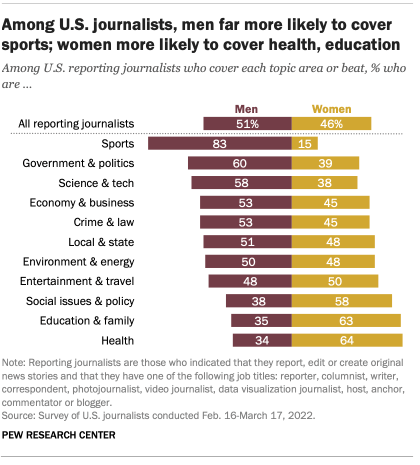
The survey asked reporting journalists to identify up to three topic areas or beats that they cover regularly, 11 of which had large enough sample sizes to study. Men are far more likely than women to cover certain beats – especially sports – while journalists who are women are more likely than men to cover news about social issues, education and health.
Men account for 83% of the surveyed journalists who indicated that they cover sports, far higher than the 15% who are women. Men also account for majorities of those who cover political news (60%) and news about science and technology (58%).
By comparison, women are more likely than men to cover three of the 11 news beats studied: health, education and families, and social issues and policy. For instance, women account for nearly two-thirds (64%) of surveyed journalists who cover news about health, while only about a third (34%) are men.
The source of data for this analysis is a Pew Research Center survey of 11,889 U.S.-based journalists who are currently working in the news industry and say that they report, edit or create original news stories in their current job. The survey was conducted online between Feb. 16 and March 17, 2022.
Because there is no readily available list of all U.S. journalists, Center researchers relied on commercial databases of journalists based in the U.S., as well as supplemental lists of news organizations to create a broad and diverse sample of over 160,000 journalists from as many types of outlets and areas of reporting as possible. Although it is impossible to be certain every segment of the journalism profession in the U.S. is covered by the sample, the use of multiple databases and supplemental lists ensured that journalists from a variety of different reporting areas, news platform types, as well as outlet sizes and types – such as those who work for organizations that are intended to primarily reach a particular demographic group – were represented.
Propensity weighting was used to ensure that the responses of the 11,889 respondents aligned with the full sample of over 160,000 journalists with respect to job titles, media outlet type, freelance status and geographic location.
This analysis looks at the journalists who cover 11 topic areas or beats. In the survey, reporting journalists were asked to write down up to three topic areas they report on in a typical month. In the survey, reporting journalists are those who indicated that they have one of the following job titles: reporter, columnist, writer, correspondent, photojournalist, video journalist, data visualization journalist, host, anchor, commentator or blogger. About three-quarters of all journalists surveyed (76%) are reporting journalists.
Researchers coded these open-ended responses into distinct categories. Eleven of the coded topic areas (or beats) had enough reporting journalists in our sample to reliably study: crime and law, economy and business, education and family, entertainment and travel, environment and energy, government and politics, health, local and state, science and technology, social issues and policy, and sports.
Refer to the topline for the questions asked in the survey. For more information on the development of the sample of journalists or the survey weighting., please read the methodology .
This is the latest analysis in Pew Research Center’s ongoing investigation of the state of news, information and journalism in the digital age, a research program funded by The Pew Charitable Trusts, with generous support from the John S. and James L. Knight Foundation.
The remaining five beats studied – economy, crime and law, local and state, environment and energy, and entertainment and travel – are more evenly split between men and women journalists.
Overall, 51% of the reporting journalists surveyed are men and 46% are women. In the survey, reporting journalists are those who indicated that they have one of the following job titles: reporter, columnist, writer, correspondent, photojournalist, video journalist, data visualization journalist, host, anchor, commentator or blogger. About three-quarters of all journalists surveyed (76%) are reporting journalists.
Majority of journalists who cover entertainment, travel are freelancers or self-employed
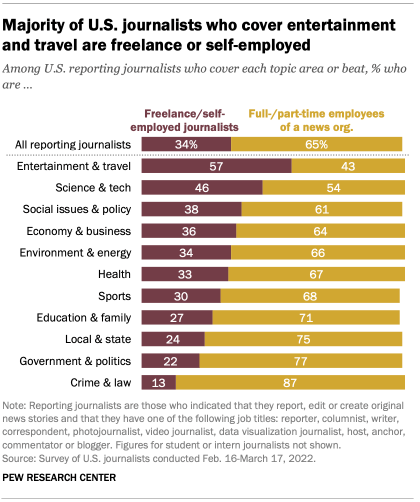
Journalists’ beats also vary by their employment status – that is, whether they are freelance or self-employed journalists, or full- or part-time journalists at a news organization.
Entertainment and travel stands out as the only topic area in which a majority of those who cover it (57%) are freelance or self-employed journalists. Nearly half of journalists who cover science and technology (46%) are also freelancers or self-employed.
On the other hand, some beats are overwhelmingly covered by either full- or part-time employees of news organizations. For instance, 87% of reporting journalists who cover crime and law fall into this category.
Overall, about a third of the reporting journalists surveyed (34%) indicated that they are freelance or self-employed, compared with about two-thirds (65%) who are full- or part-time employees of a news organization.
Journalists’ beats vary somewhat by race, ethnicity
Journalists’ beats also differ modestly by other demographic factors, including race and ethnicity.
One reporting area particularly stands out by the race and ethnicity of the journalists who cover it: social issues and policy. Hispanic and Black journalists make up a greater portion of those who cover this beat (20% and 15%, respectively) than any other studied.
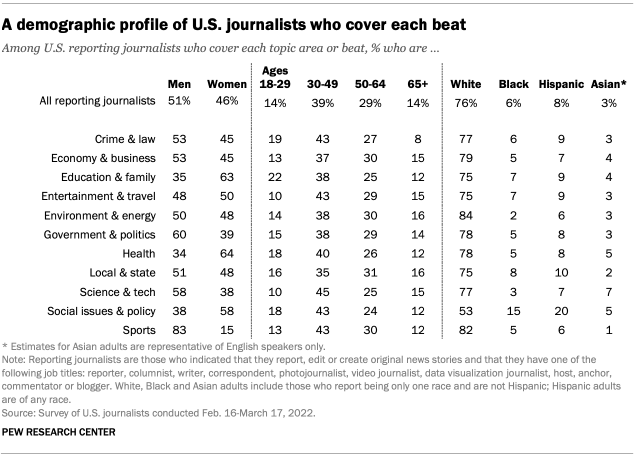
White journalists make up about half (53%) of those who report on social issues and policy, but they make up large majorities of the other 10 beats studied, including 84% of those who cover environment and energy. Asian journalists account for no more than 7% of those who cover any of the 11 beats studied.
Overall, 76% of all reporting journalists surveyed indicated that they are White, while 8% are Hispanic, 6% are Black and 3% are Asian. These figures align closely with previous research showing that a large portion of newsrooms’ employees are White , higher than the share of U.S. workers overall who are White.
Note: Here are the questions used for the report , along with responses, and the survey methodology .
- Journalists
- Media Industry
- News Media Trends

Emily Tomasik is a research assistant focusing on news and information research at Pew Research Center

Jeffrey Gottfried is an associate director focusing on internet and technology research at Pew Research Center
About one-in-six U.S. journalists at news outlets are part of a union; many more would join one if they could
U.s. journalists differ from the public in their views of ‘bothsidesism’ in journalism, twitter is the go-to social media site for u.s. journalists, but not for the public, journalists sense turmoil in their industry amid continued passion for their work, q&a: how and why pew research center surveyed almost 12,000 u.s. journalists, most popular.
1615 L St. NW, Suite 800 Washington, DC 20036 USA (+1) 202-419-4300 | Main (+1) 202-857-8562 | Fax (+1) 202-419-4372 | Media Inquiries
Research Topics
- Age & Generations
- Coronavirus (COVID-19)
- Economy & Work
- Family & Relationships
- Gender & LGBTQ
- Immigration & Migration
- International Affairs
- Internet & Technology
- Methodological Research
- News Habits & Media
- Non-U.S. Governments
- Other Topics
- Politics & Policy
- Race & Ethnicity
- Email Newsletters
ABOUT PEW RESEARCH CENTER Pew Research Center is a nonpartisan fact tank that informs the public about the issues, attitudes and trends shaping the world. It conducts public opinion polling, demographic research, media content analysis and other empirical social science research. Pew Research Center does not take policy positions. It is a subsidiary of The Pew Charitable Trusts .
Copyright 2024 Pew Research Center
Terms & Conditions
Privacy Policy
Cookie Settings
Reprints, Permissions & Use Policy

IMAGES
VIDEO
COMMENTS
Science papers are interesting to write and easy to research because there are so many current and reputable journals online. Start by browsing through the STEM research topics below, which are written in the form of prompts. Then, look at some of the linked articles at the end for further ideas.
Welcome to the exciting world of science research topics! Science research is the process of exploring, discovering, and developing new knowledge about the natural world. It is an ever-evolving field that seeks to answer questions about the universe, from the smallest subatomic particles to the largest galaxies.. Whether you are a student, researcher, or just a curious individual, exploring ...
1000+ FREE Research Topics & Title Ideas. If you're at the start of your research journey and are trying to figure out which research topic you want to focus on, you've come to the right place. Select your area of interest below to view a comprehensive collection of potential research ideas. AI & Machine Learning. Blockchain & Cryptocurrency.
By Tom Siegfried February 28, 2024. Scientists and journalists share a core belief in questioning, observing and verifying to reach the truth. Science News reports on crucial research and ...
113 Great Research Paper Topics. One of the hardest parts of writing a research paper can be just finding a good topic to write about. Fortunately we've done the hard work for you and have compiled a list of 113 interesting research paper topics. They've been organized into ten categories and cover a wide range of subjects so you can easily ...
The list provides 1000+ topic ideas across 25 research areas, including: Accounting & finance. Artificial intelligence (AI) and machine learning. Biotech and genetic engineering. Blockchain and crypto. Business, management and leadership. Communication. Cybersecurity. Data science and analytics.
Finding and choosing a strong research topic is the critical first step when it comes to crafting a high-quality dissertation, thesis or research project. Here, we'll explore a variety research ideas and topic thought-starters related to various environmental science disciplines, including ecology, oceanography, hydrology, geology, soil science, environmental chemistry, environmental ...
This list of more than 300 science research paper topics aims to provide students and researchers with a comprehensice outlook of modern science, its various fields, and historical development. This list is divided into 16 thematic categories: Acoustics Research Paper Topics. Agriculture Research Paper Topics. Anatomy Research Paper Topics.
Find the answers to your biggest research questions from 2021. With collective views of over 3.7 million, researchers explored topics spanning from nutritional Frontiers | Science News
Find breaking science news and analysis from the world's leading research journal.
Includes over 2,000 journals and 35,000 books published by Elsevier Science and its subsidiary publishers, including Academic Press, Cell Press, Pergamon, Mosby, and Saunders journals. Coverage is particularly strong for the life and physical sciences, medicine, and technical fields, but also includes some social sciences and humanities.
About ScienceDirect Topics. Topic pages are designed to help you get up to speed with new topics in your field of research or area of study. The extracts provided on ScienceDirect Topics are written by subject matter experts and are drawn from foundational and reference materials. ScienceDirect makes use of machine learning (ML) and natural ...
A randomized, double-blinded, placebo-controlled clinical trial on Lactobacillus-containing cultured milk drink as adjuvant therapy for depression in irritable bowel syndrome. Marlynna Sarkawi ...
A science topic is any phenom or entity that can be systematically investigated with the scientific method. These are selected for purposes such as research, lessons and school projects. Investigation of science topics can involve experiments and the construction of demonstrative models. The following are illustrative examples of science topics.
Here's another list of intriguing scientific research paper topics to help you with writing a good piece. Recent scientific successes on the front of climate change. A research paper on the basics of astronomy. Harnessing the seismic potential of white dwarf stars. Research Paper on Representations and Fusion.
Top 100 in Earth Science. This collection highlights our most downloaded* Earth science papers published in 2021. Featuring authors from around the world, these papers showcase valuable research ...
7. 01.09.2024. Science is a field of exploration and discovery. It unravels why everything works or behaves the way it does. It's also one of the few fields that can keep us engaged and on the edge of our seats as we explore science related topics and make breakthroughs. A fascinating aspect of science is research.
Research Topics List. JPL's charter is to conduct robotic space missions for NASA, to explore our own and neighboring planetary systems, understand the origin and evolution of the universe and make critical measurements to understand our home planet and help protect it. We do this by developing integrated capabilities in engineering, science ...
80+ Science Research Paper Topics Ideas For Students. Essay writing or writing dissertation is an integral part of education at any level, middle school, high school, or college. Some of the most common essays are on science research topics, and they are also quite interesting. However, choosing research paper topics isn't as straightforward ...
ABOUT PEW RESEARCH CENTER Pew Research Center is a nonpartisan fact tank that informs the public about the issues, attitudes and trends shaping the world. It conducts public opinion polling, demographic research, media content analysis and other empirical social science research. Pew Research Center does not take policy positions.
Finding and choosing a strong research topic is the critical first step when it comes to crafting a high-quality dissertation, thesis or research project. If you've landed on this post, chances are you're looking for a healthcare-related research topic, but aren't sure where to start. Here, we'll explore a variety of healthcare-related research ideas and topic thought-starters across a ...
Below is a list of the 1148 science fair project ideas on our site. To help you find a topic that can hold your interest, Science Buddies has also developed the Topic Selection Wizard.It will help you focus on an area of science that's best for you without having to read through every project one by one!
Landing at Gale Crater, Mars Science Laboratory is assessing whether Mars ever had an environment capable of supporting microbial life. Determining past habitability on Mars gives NASA and the scientific community a better understanding of whether life could have existed on the Red Planet and, if it could have existed, an idea of where to look for it in the future.
The following Research Topics are led by experts in their field and contribute to the scientific understanding of plant-science. These Research topics are published in the peer-reviewed journal Frontiers in Plant Science, as open access articles.
A new study details how a daily dose could prevent or delay the progression of the world's third most common type of cancer. New research links daily aspirin use with a decreased risk of ...
So far, 13 planning grants and two conference grants have been made, including one planning grant in a state that is part of the Established Program to Stimulate Competitive Research, supporting areas in the U.S. that have historically received less federal support for research and development. Below is a sampling of planning grants awarded in ...
Our research finds that the current impact of non-competes on innovation is negative. Using detailed data on patenting, firm entry, and the state-level enforceability of non-competes around the United States, we show that patenting actually declines significantly following increases in enforceability.
Topics & Ideas: Political Theory. An analysis of the impact of feminism on political theory and the concept of citizenship in Saudi Arabia in the context of Vision 2030. A comparative study of the political philosophies of Marxism and liberalism and their influence on modern politics. An examination of how the Covid-19 pandemic affected the ...
The source of data for this analysis is a Pew Research Center survey of 11,889 U.S.-based journalists who are currently working in the news industry and say that they report, edit or create original news stories in their current job. The survey was conducted online between Feb. 16 and March 17, 2022. Because there is no readily available list of all U.S. journalists, Center researchers relied ...